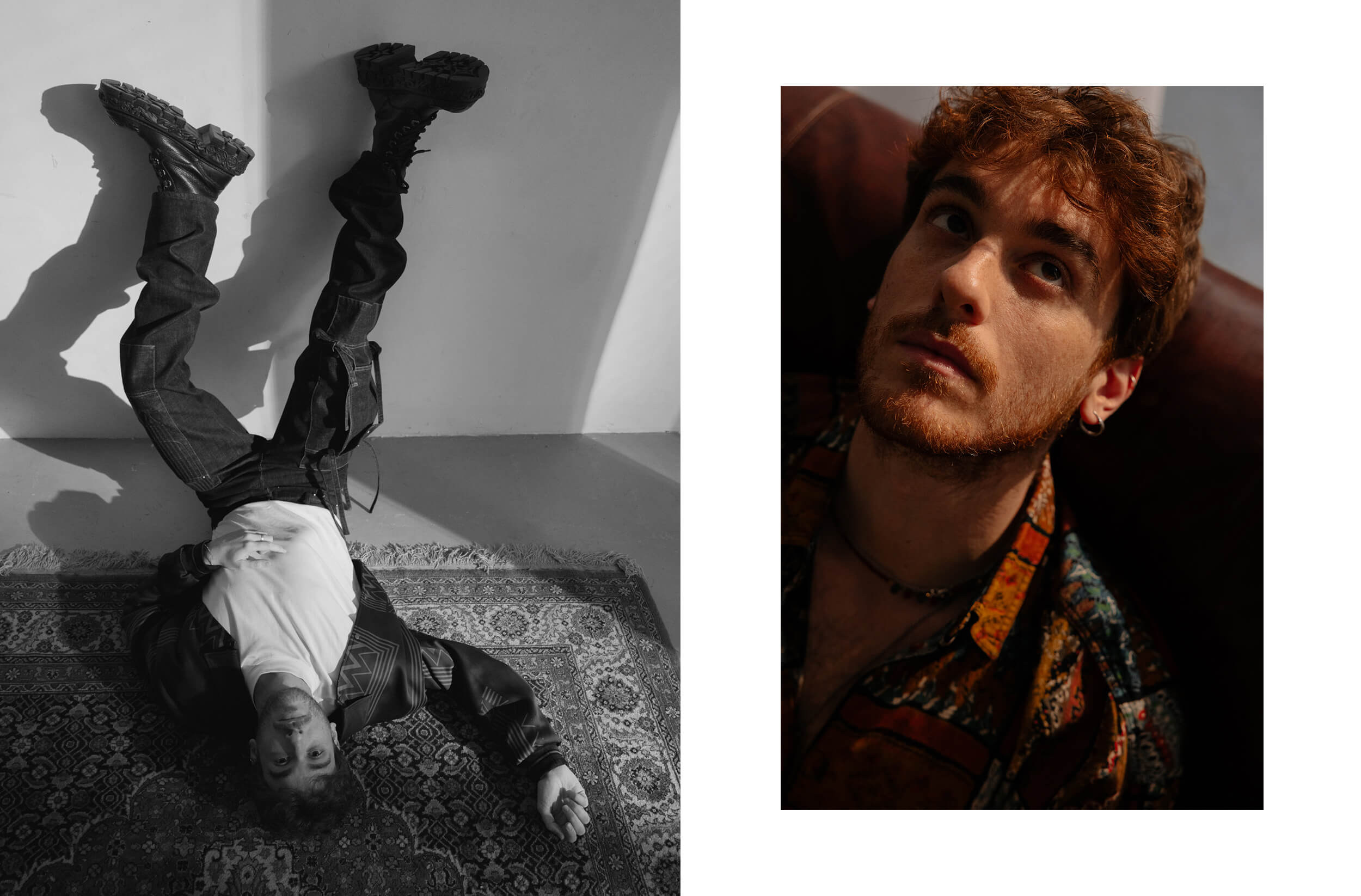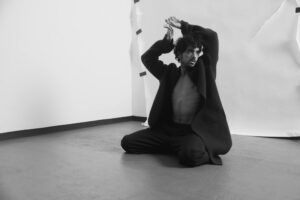“Feeling like we own all answers.
Is this what normal is? Good mental health?
The real madness is not to ever give up. Not to ever kneel down” – Daniele Mencarelli
With Federico Cesari, our June Cover Story, we’ve talked about everything: fear, mental health, new projects, and peaceful places where to take shelter, which are nothing but the people in our lives.
With soon-to-be-released projects that are increasingly showing a precise, thought-out, and unique path, Federico gave us access to his world where feelings and emotions can’t be hidden and the awareness on the theme of mental health is always in the first place and talking about it is the best way to create a better environment.
Art, precisely, becomes the main vehicle of words and a tool to unite generations, in the hope to make the gap between ours and the one before always smaller.
The following questions, this interview that I’m about to do, will focus on your new projects but more than anything, it will be about you and what you are doing regarding mental health. About a year and a half ago, we launched this new interview format to talk about mental health and to talk about it in the most natural way possible because we shouldn’t even mention that we are actually talking about it: it should be something totally normal, that it is part of our society. What have you discovered is the most difficult thing when it comes to educating about mental health? And how important is it for you to talk about it?
The fact that there still is a slight repulsion and I still have to understand where it comes from, maybe from the meaning that is given to the psychological sufferance, so maybe from the fear of stigma. I guess this is what scares people the most: it’s that condition of not being defined as “normal” in some way that frightens people, and so it keeps them from talking about it, from admitting they have a problem. For instance, I experience this on my skin every day because many people close to me tend to say, “What good comes from seeing a therapist?”. If I feel the need to go to therapy, my choice shouldn’t be questioned, the needs of others shouldn’t ever be questioned. The idea of one seemingly “normal” person and one who is “not” overlaps somewhat with the stereotype you have in your head of a person who sees a therapist and who can be considered a person who is crazy and potentially dangerous; therefore, in my opinion, it all goes back to that completely distorted image of the person who is psychologically suffering. I think this is the biggest step to overcome, the fact of relating to what I believe are feelings that belong to everyone – emotions that are part of the human emotional spectrum, which make us even more human. Because the moment one pursues the will to reach the status of an extremely performing person who feels constantly positive emotions and, as they say in “Everything Calls for Salvation”, those who never kneel, I believe this reaches the most dehumanized and inhuman version of the person who asks for help and goes into analysis.
I find that, above all, in this historical moment, the models that are offered to us and that the public receives through various platforms or examples very often distance the person from their own humanity, erasing fundamental parts of our humanity.
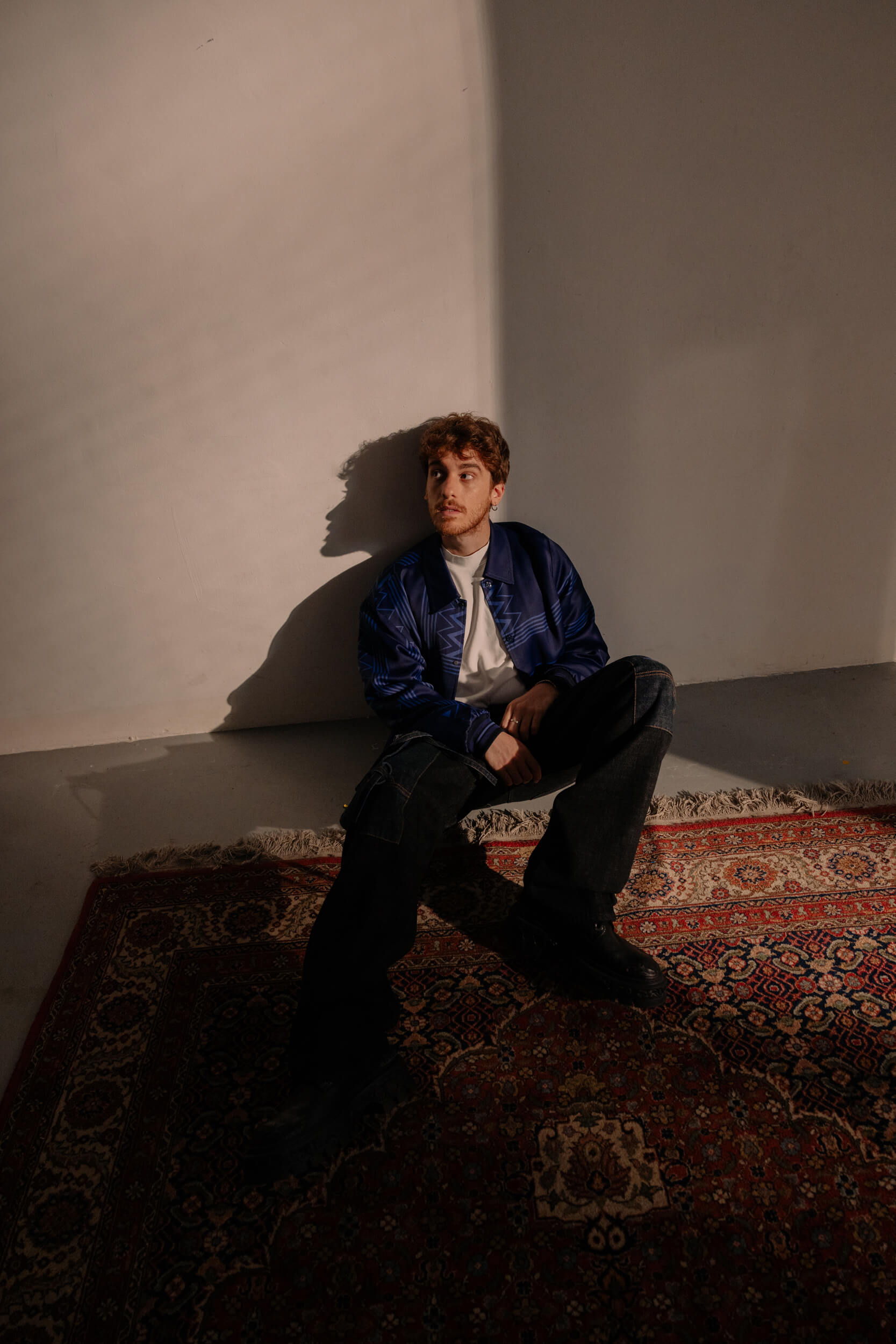
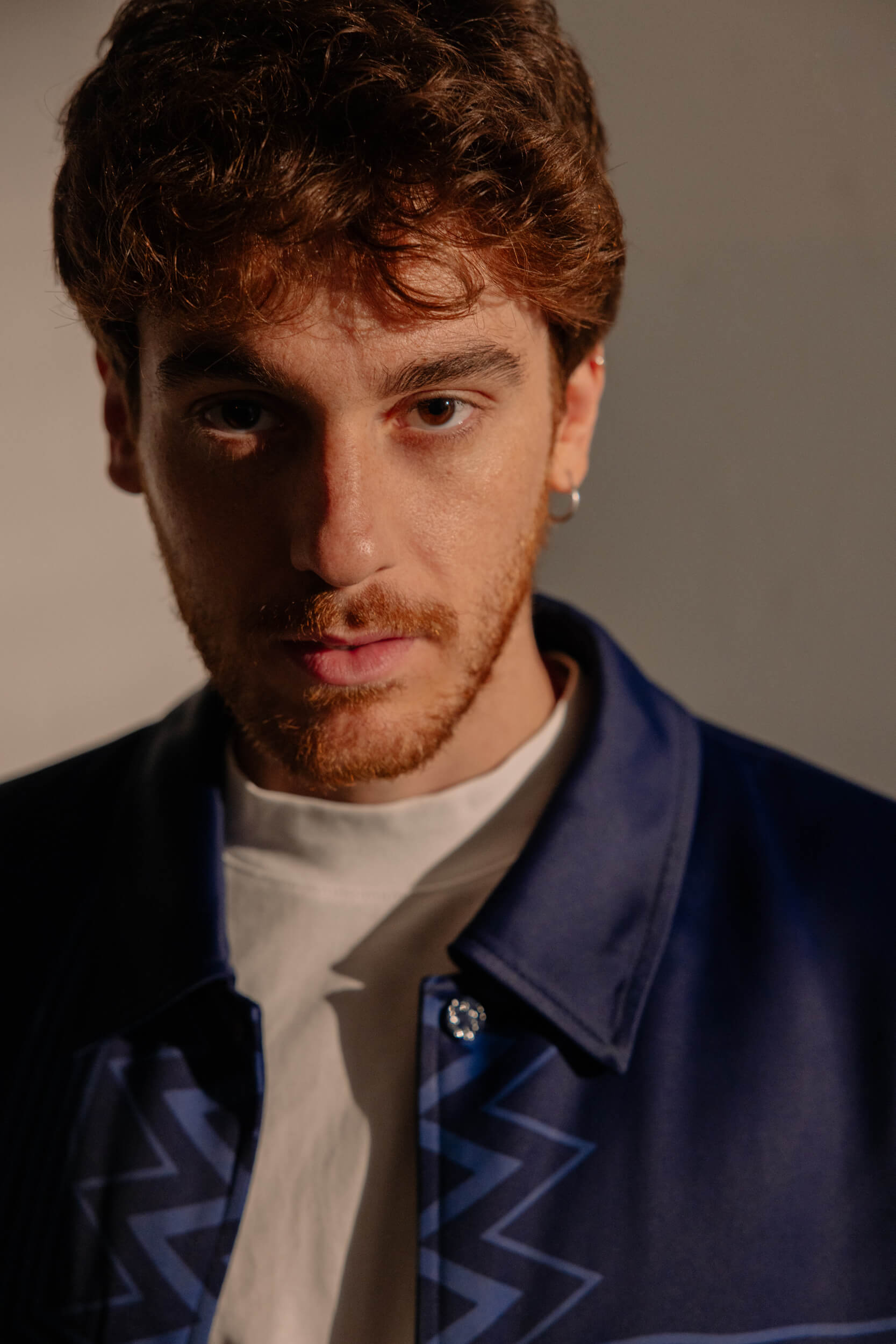
Absolutely. Then most times, people almost feel ashamed to admit they need help. I’ve been in therapy for 10 years now, and without my therapist, there would be so many things that I would still be fighting against. I must say I was lucky enough to be surrounded by people who have supported me, and that not even for one second have made me think that seeing a therapist wasn’t “normal”. In your opinion, where should we truly begin to see a change?
I think it’s very important to talk about mental health in the schools.
For instance, through a UNICEF project I was involved in, I was lucky enough to meet the people that manage a clinic of the Agostino Gemelli University Policlinic, which functions as access to a sort of basic therapist to whom one can turn, especially useful for people who do not have financial resources and perhaps need quick access to psychological care. I have met many young people who have used this service: many of them do not talk about this journey with their friends when it could actually be very educational for their peers and give indications and advice. However, I do understand why they don’t talk about it because very often this stigma is also widespread within our generation.
I believe that talking about it in schools and representing it through means that are more accessible for young people, is a very important thing. Indeed, I am very happy to be part of a project like “Everything Calls for Salvation”, which has been appreciated by many young people. I believe, however, that there is another important issue within the family structure, namely in the parental figures. In my opinion, our generation has the great advantage of being open on many issues, much more than older generations, so surely there is much more talk about it now than a dialogue that could exist between older adults. In short, we are a generation that is more sensitive to certain issues, while in the older ones, there is a little more resistance to these topics and an often-altered vision. I believe that in most cases, if kids have a distorted view of psychological support and what it means to ask for it, is because of the household education they receive. Above all, parental figures are the ones who can really make a difference in one’s psychological journey: since there is still no state figure in Italy to whom a person can turn as there is no basic therapy access, young people who are sons and daughters of parents who do not believe in psychotherapy, and unfortunately I know many of them, even if they, perhaps feel the need to see a therapist, in most cases they cannot afford it because if their parents do not support them, they are unable to ask for help; although sometimes kids try to make their real needs understood, they are often not heard, therefore, in my opinion, there is a strong need to make the parental figures understand the importance of this topic.
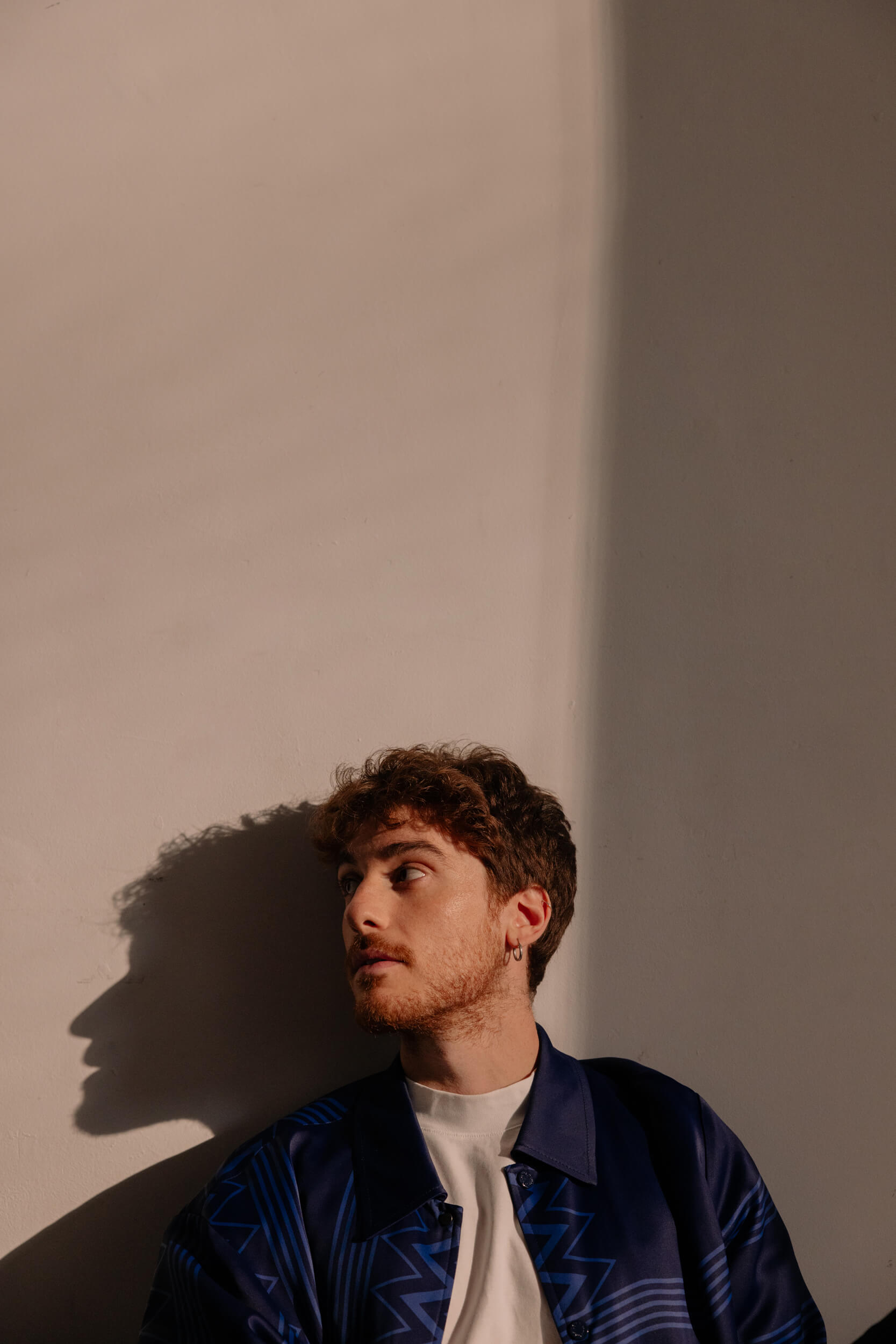
“We are a generation that is more sensitive to certain issues, while in the older ones, there is a little more resistance to these topics and an often-altered vision.”
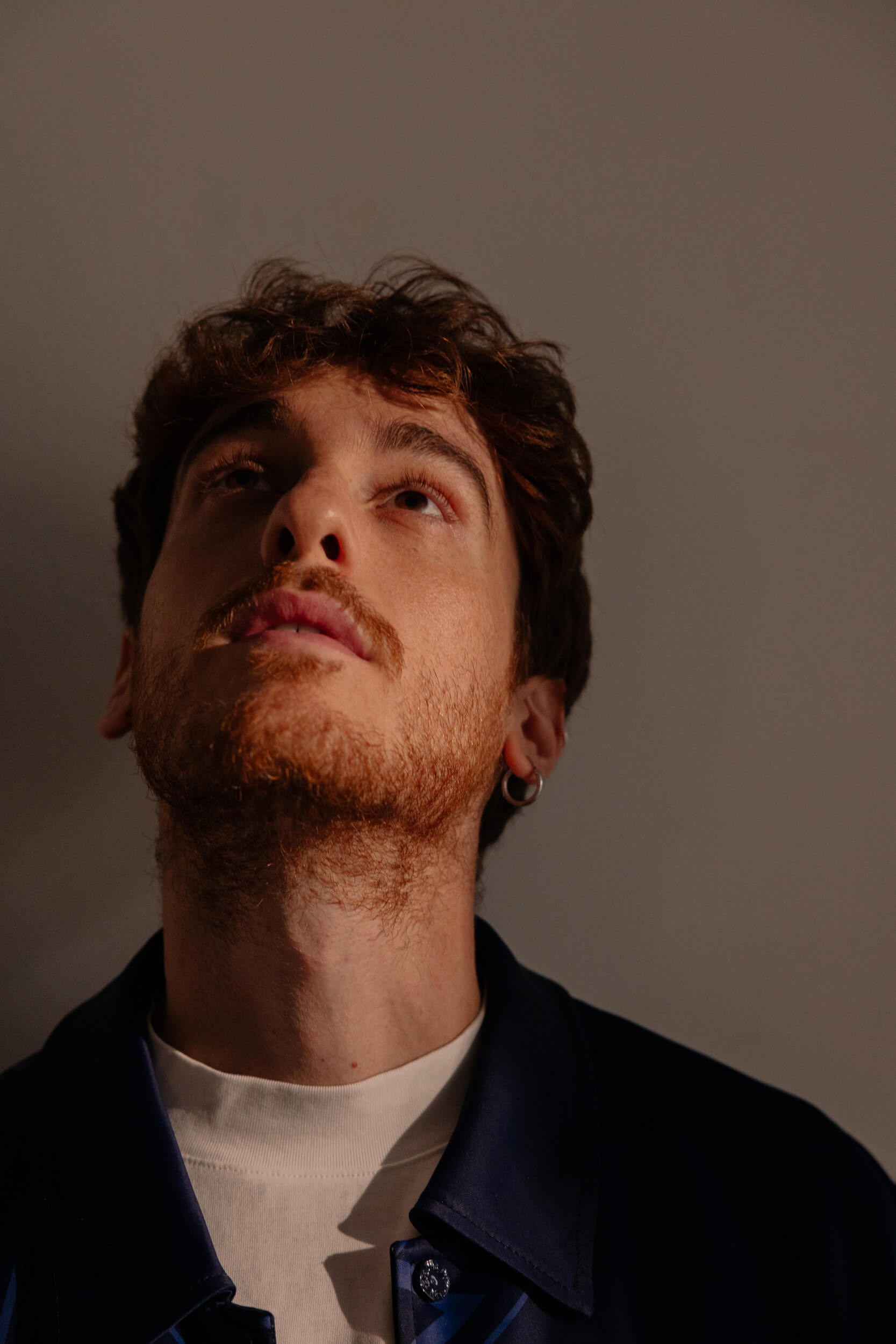
With the job you do as an actor, you are met with different characters you have to play and questions you have to ask, and I guess you also come into contact with new parts of yourself. What is the latest thing you discovered about yourself?
Interesting question. The latest thing I discovered about myself, thanks to Daniele’s character, is a feeling that I thought was more difficult for me to feel, but which was almost a relief outlet and I’m now trying to identify its origin, from which piece of myself it comes from. It’s a wall that I would put up in my personal life, and maybe I still do, against the feeling of anger. Instead, I’ve now discovered that this feeling comes out much more easily thanks to Daniele, and I’m trying to understand why.
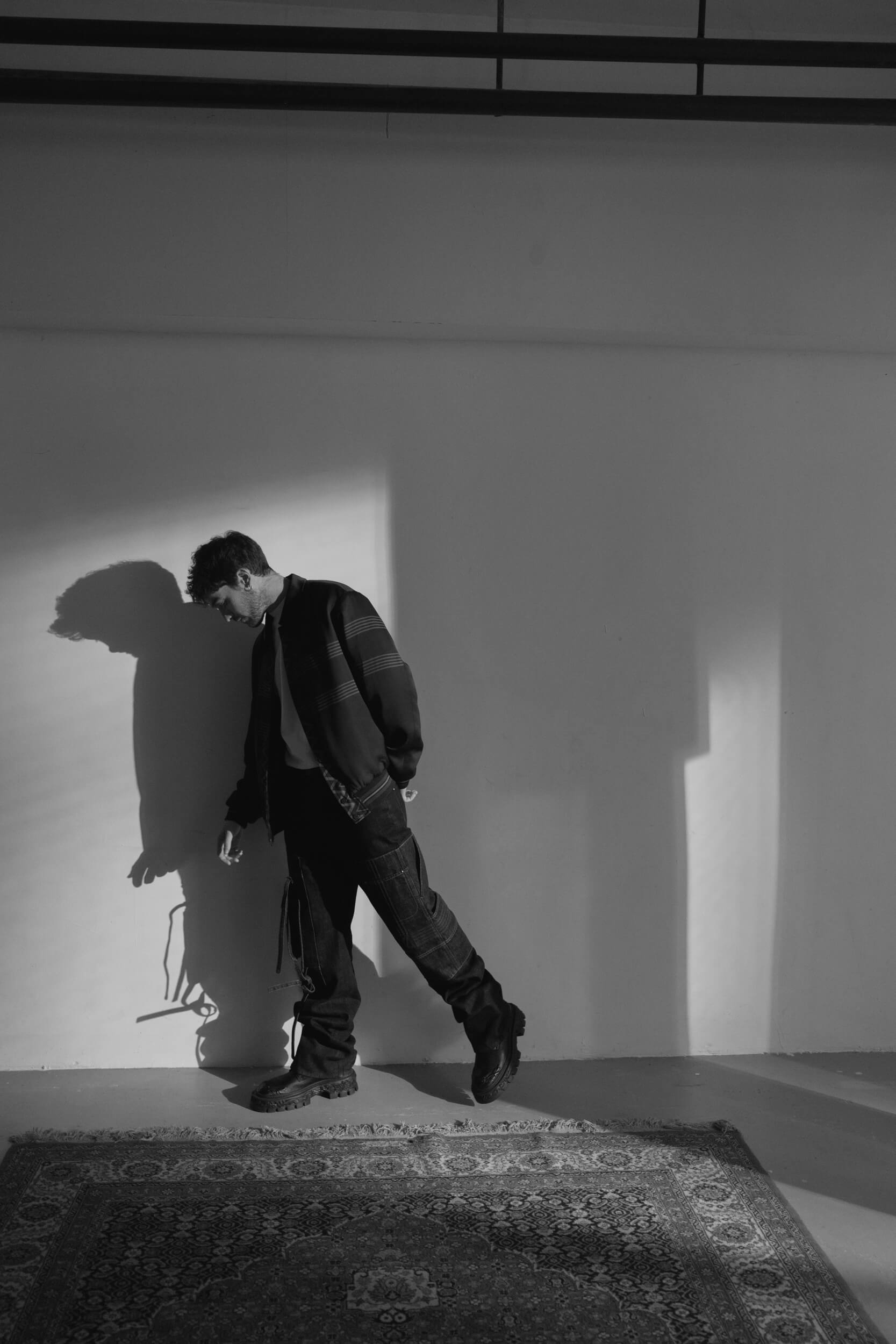
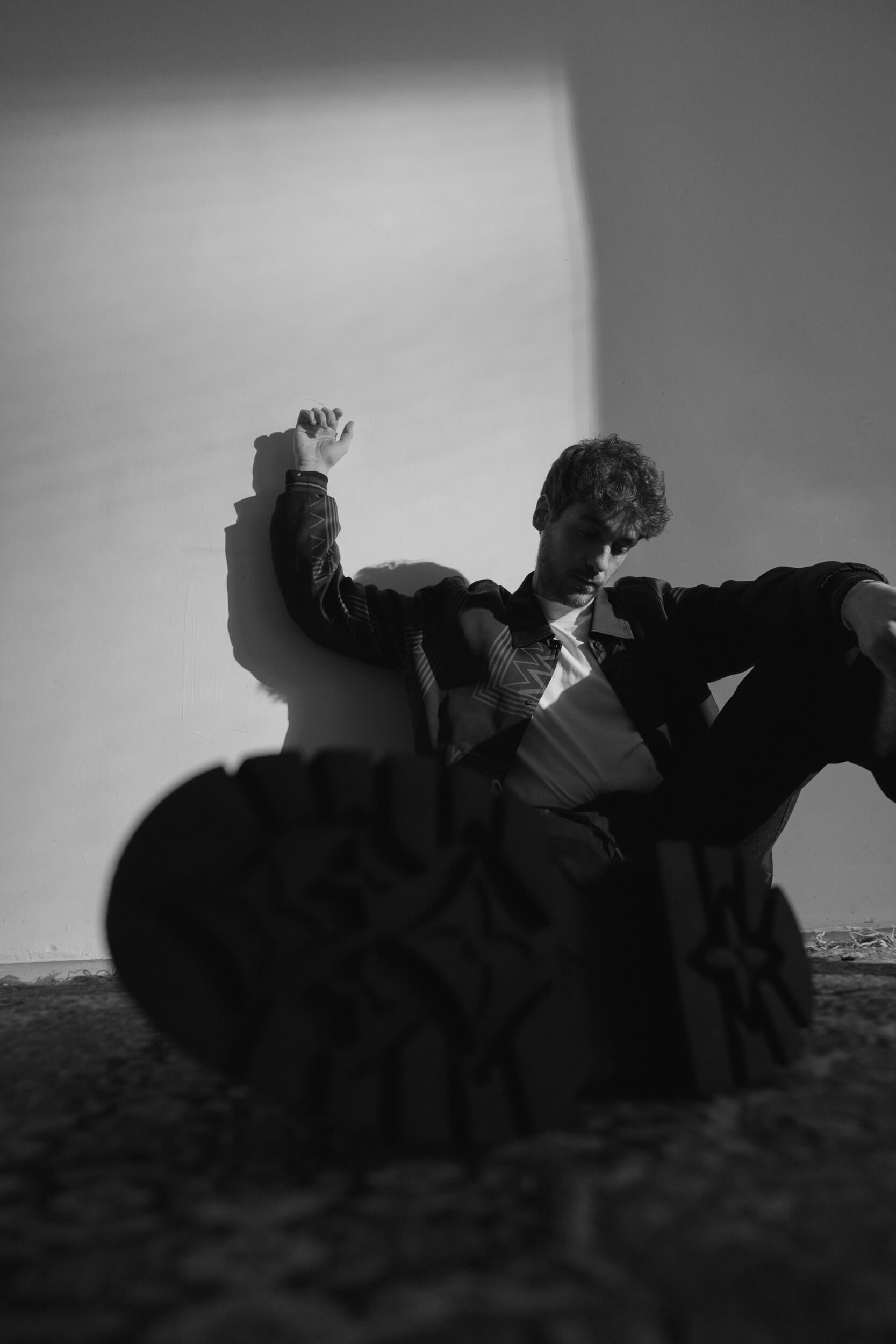
Maybe sometimes it’s almost therapeutic to do your job, I guess you’ve asked yourself a lot of questions, for example, to play Daniele, who’s such a complex, interesting and different character.
It is absolutely therapeutic, because, in addition to making me ask myself questions, it allows me to face, if I experience them, emotions that are more difficult to come by every day, or that are so amplified that it is harder they come by in your everyday life. Surely it is a great relief outlet, a great emotional chest that fills you every time when you perform and receive and give. For me, it’s something I feel I need.
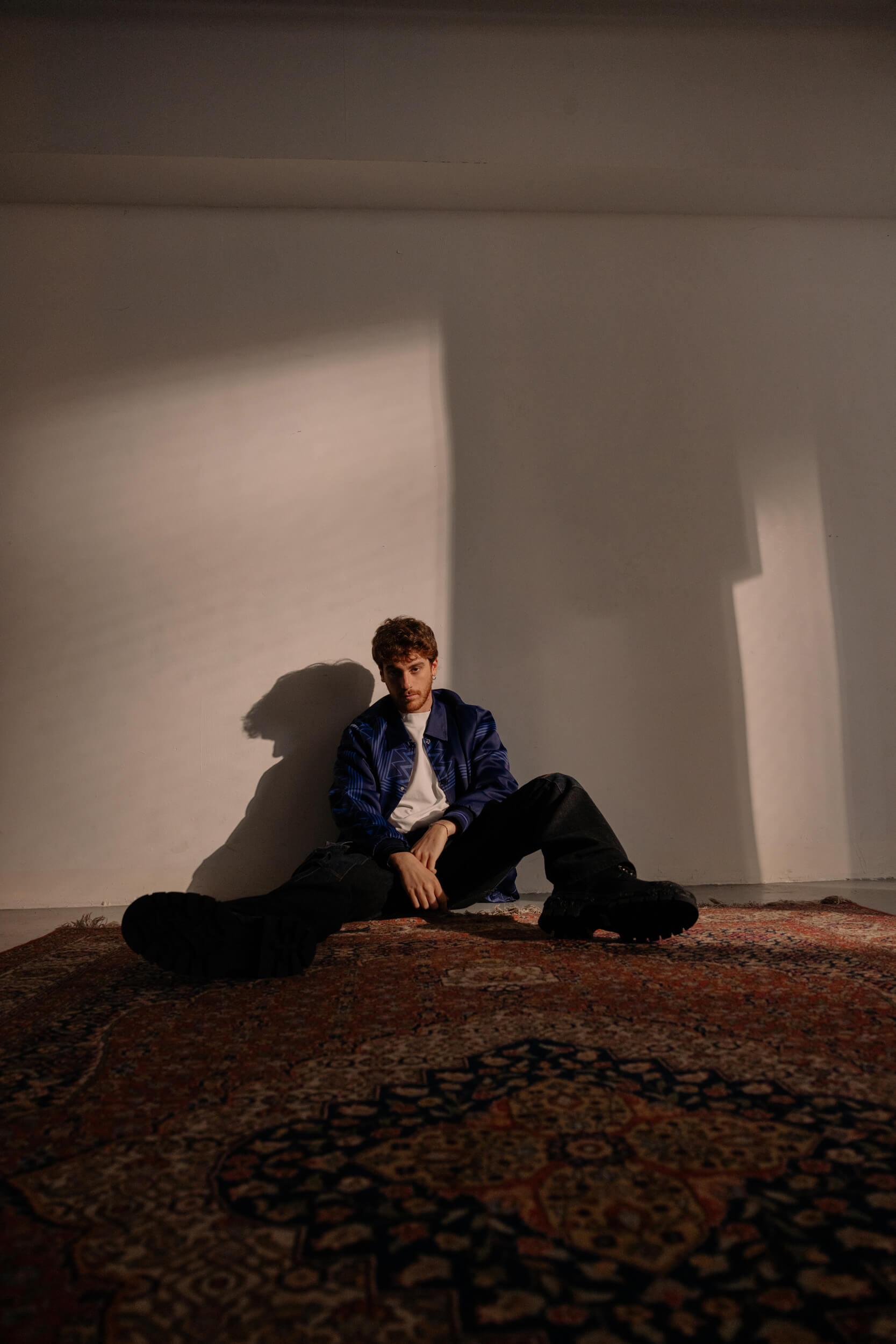
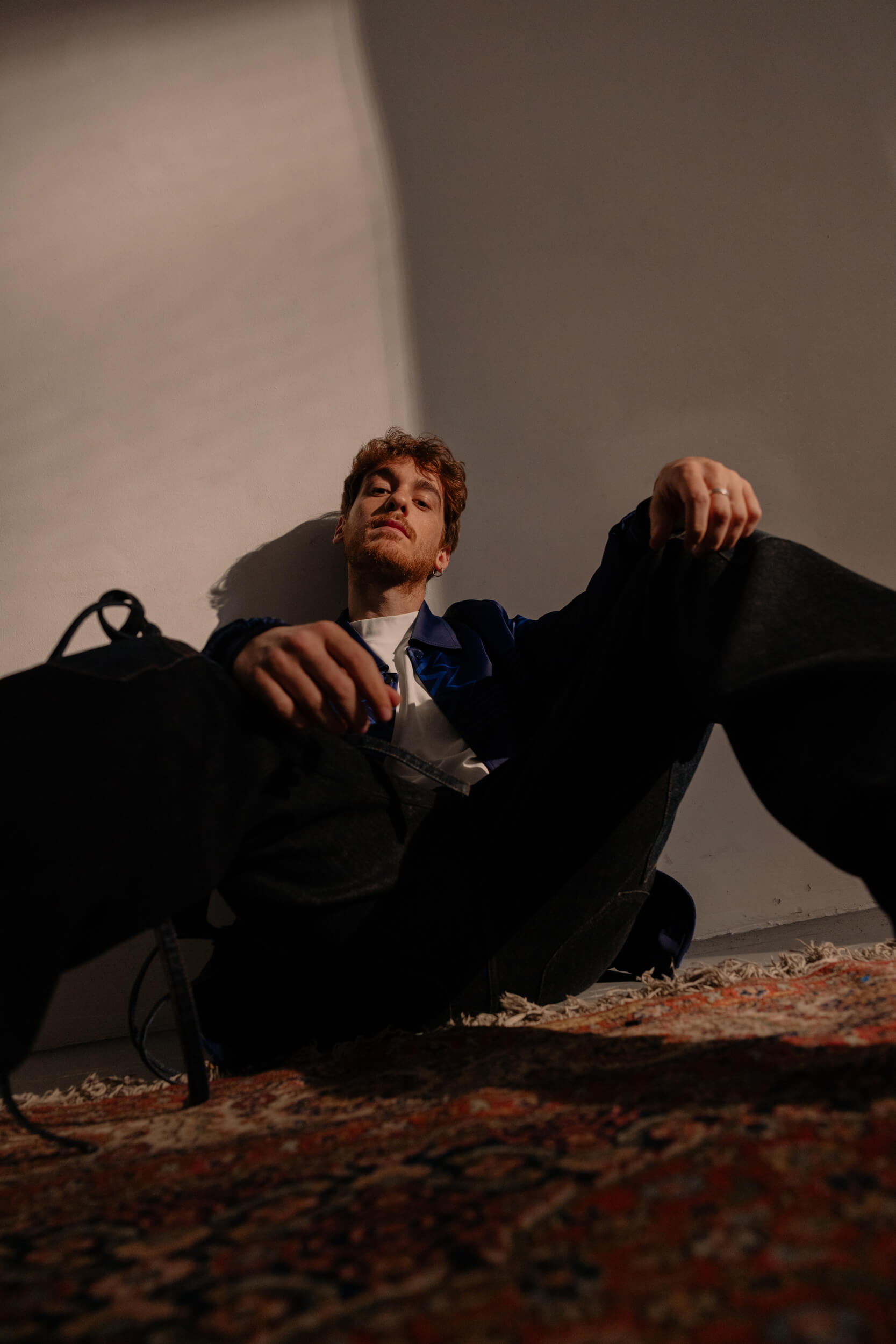
When we talk about mental health, we also often talk about the body but we talk about it much more when referring to women, this aspect too, in my opinion, needs to be cleared. What is your body for you?
My view of my body is very essential. In my work, it becomes a tool of expression, so it’s very useful to me. In my everyday life, it’s simply my interaction model within my surroundings. I’m actually very at peace with my body and the fact that it’s undergoing biological laws or the fact that my body is part of a process that is that of the natural world. On one hand, this scares me, on the other, it makes me feel part of something bigger. I have a tattooed phrase that partly expresses this concept and partly something else, a Radiohead quote: “But gravity always wins”.
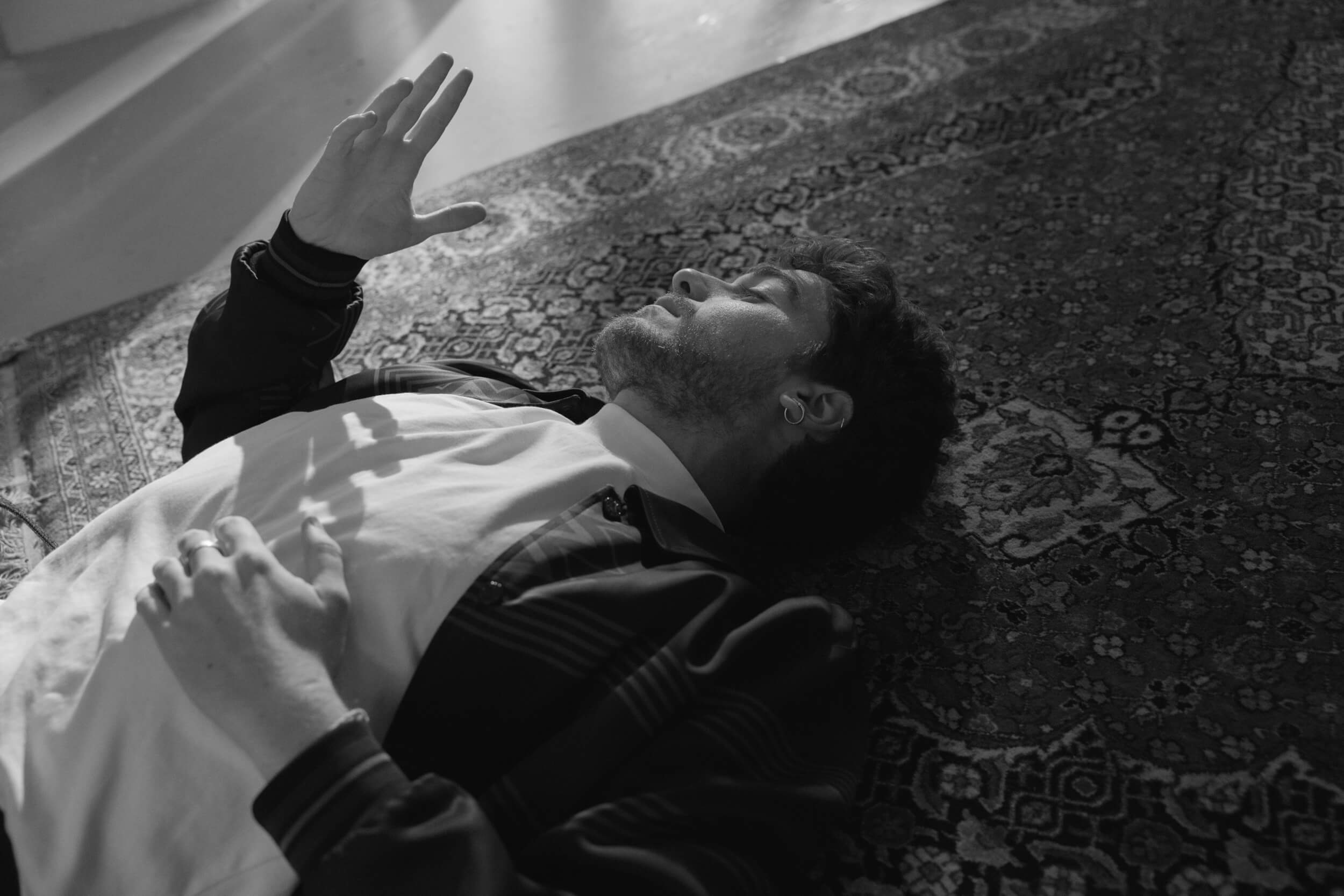
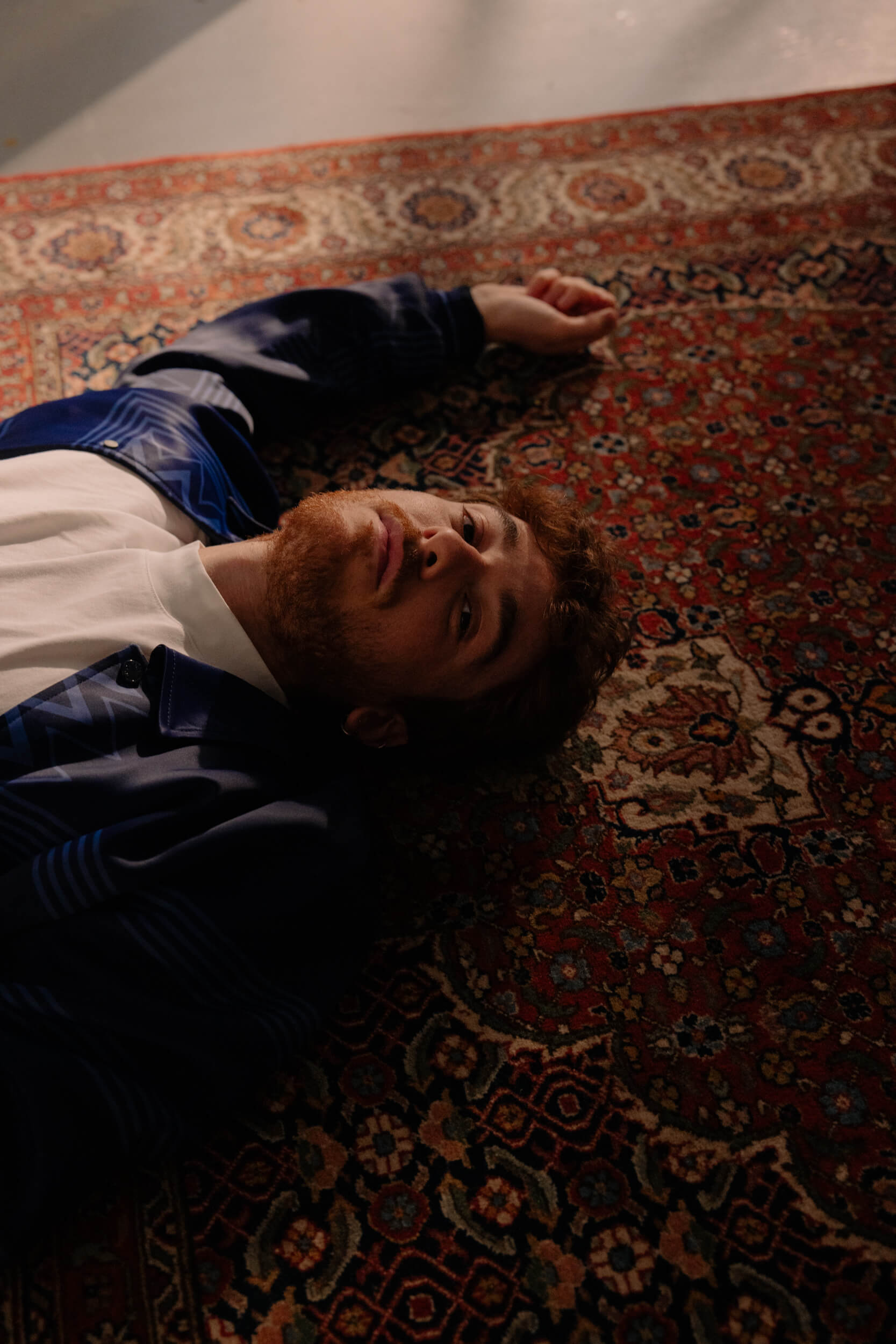
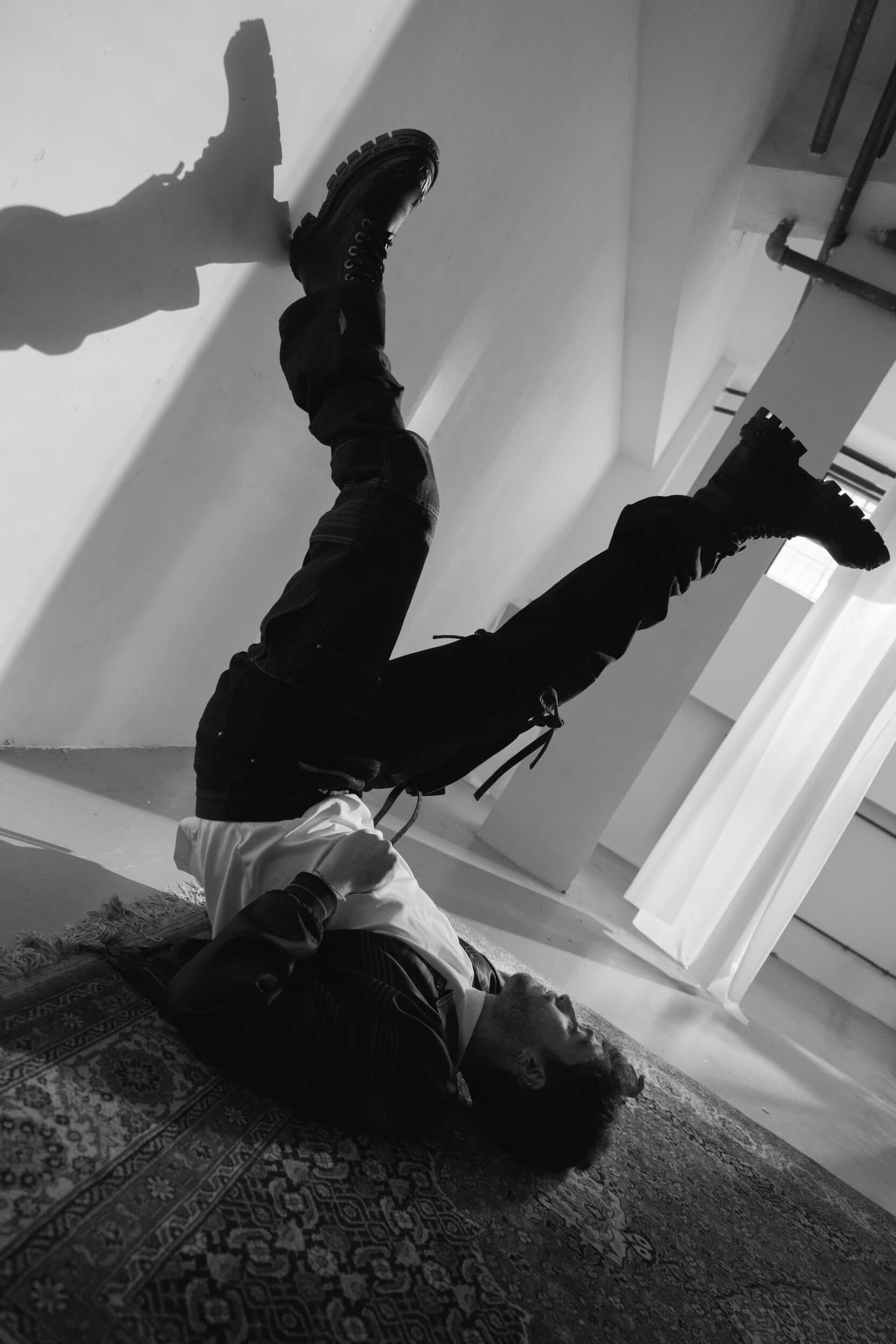
Moving back to “Everything Calls for Salvation”, when I read the book, I was struck by it because it speaks to you in such a profound but true, unsettling way. One of the first 20 pages talks about salvation and the fact that Daniele’s greatest fear is that the human being is nothing but a coincidence and he is “a life” by mistake. He always asks very huge and very important questions. How difficult was it to interpret this role, and connect with these aspects, as well?
Actually, it wasn’t that hard because we’re talking about questions that I ask myself every day and that I remind myself of every day because it’s more about remembering them than asking them since in most cases you don’t have an answer. These great themes are part of the daily order of my life. I think that everyone has their own way of believing in something and that something represents the engine or thrust of one’s life. These are things that I repeat to myself on a daily basis, so Daniele and I are very similar on this. Even Daniele Mencarelli, although he is in a different phase of life compared to when he underwent the Involuntary commitment, still continues to ask himself those questions today and there is a very important exchange between him and me on our points of view, so we are very similar on this too the two of us.
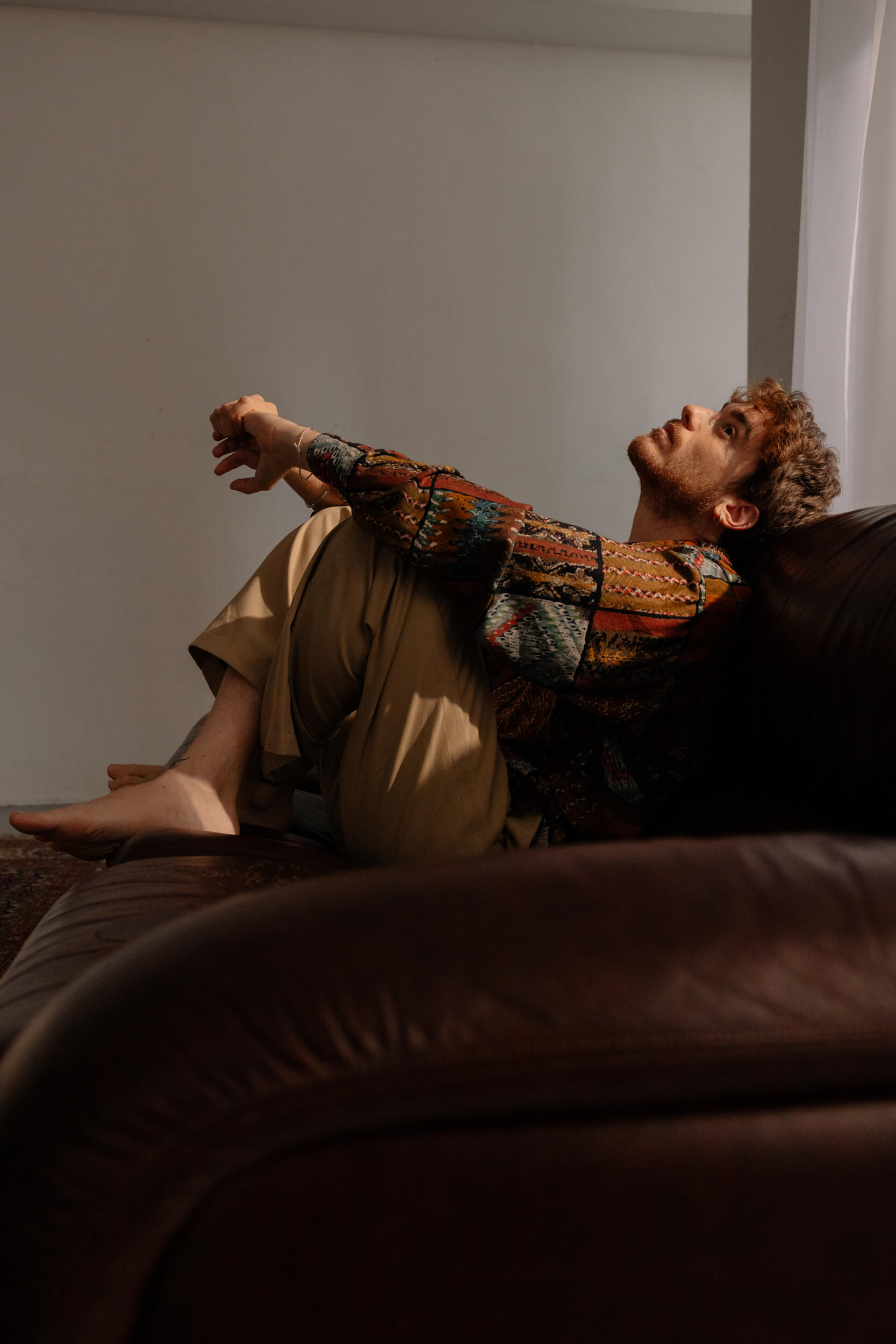
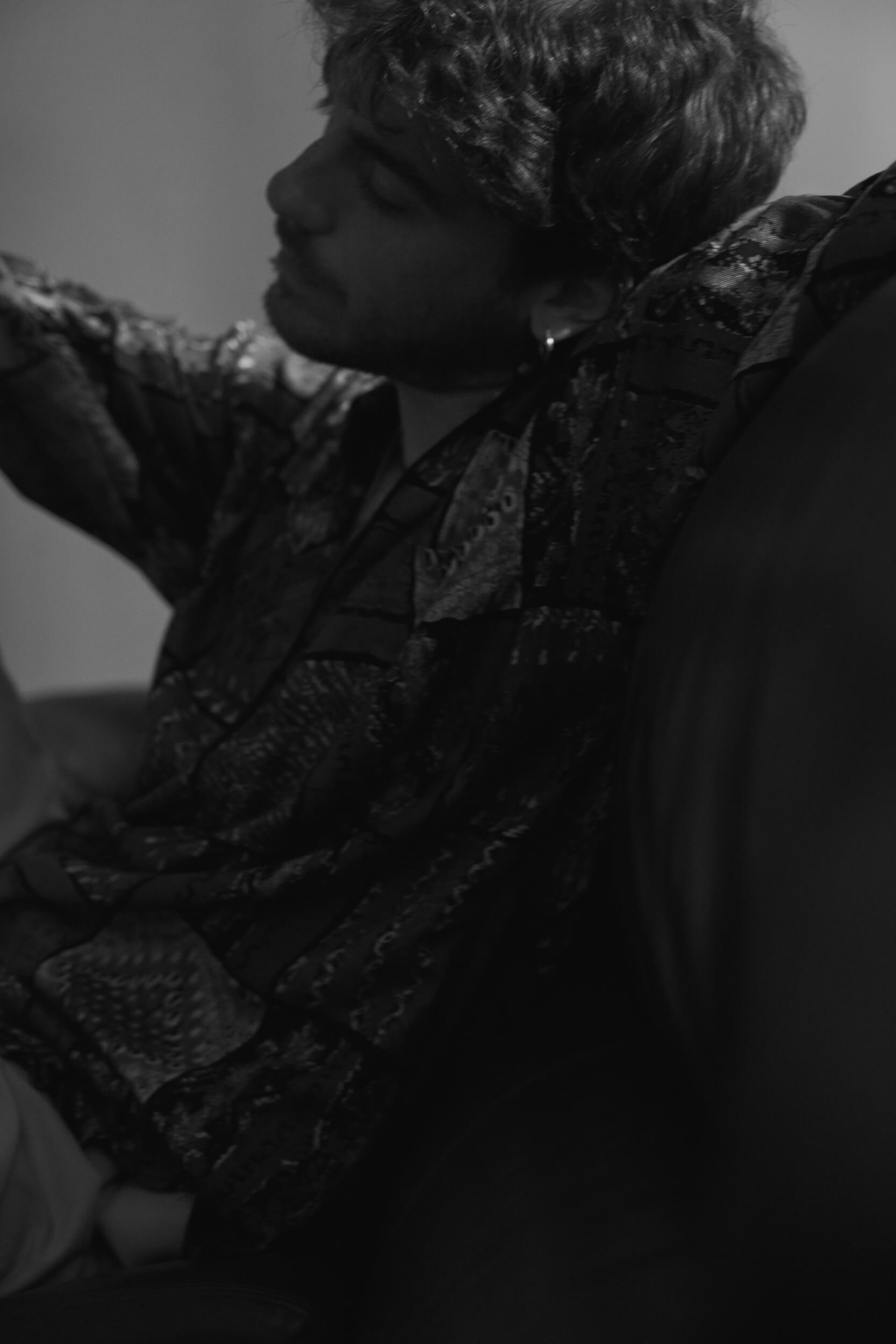
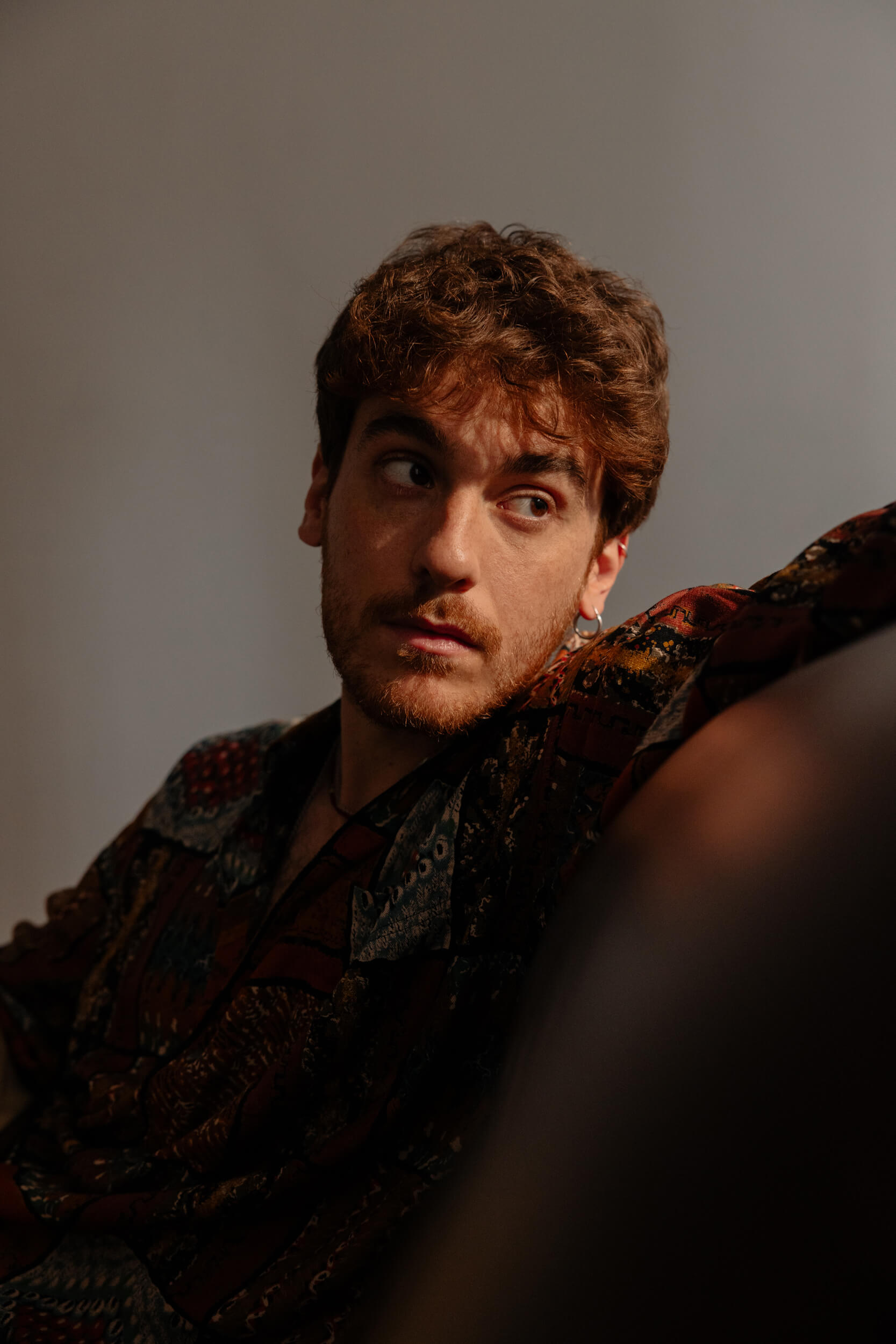
“I think that everyone has their own way of believing in something and that something represents the engine or thrust of one’s life.”
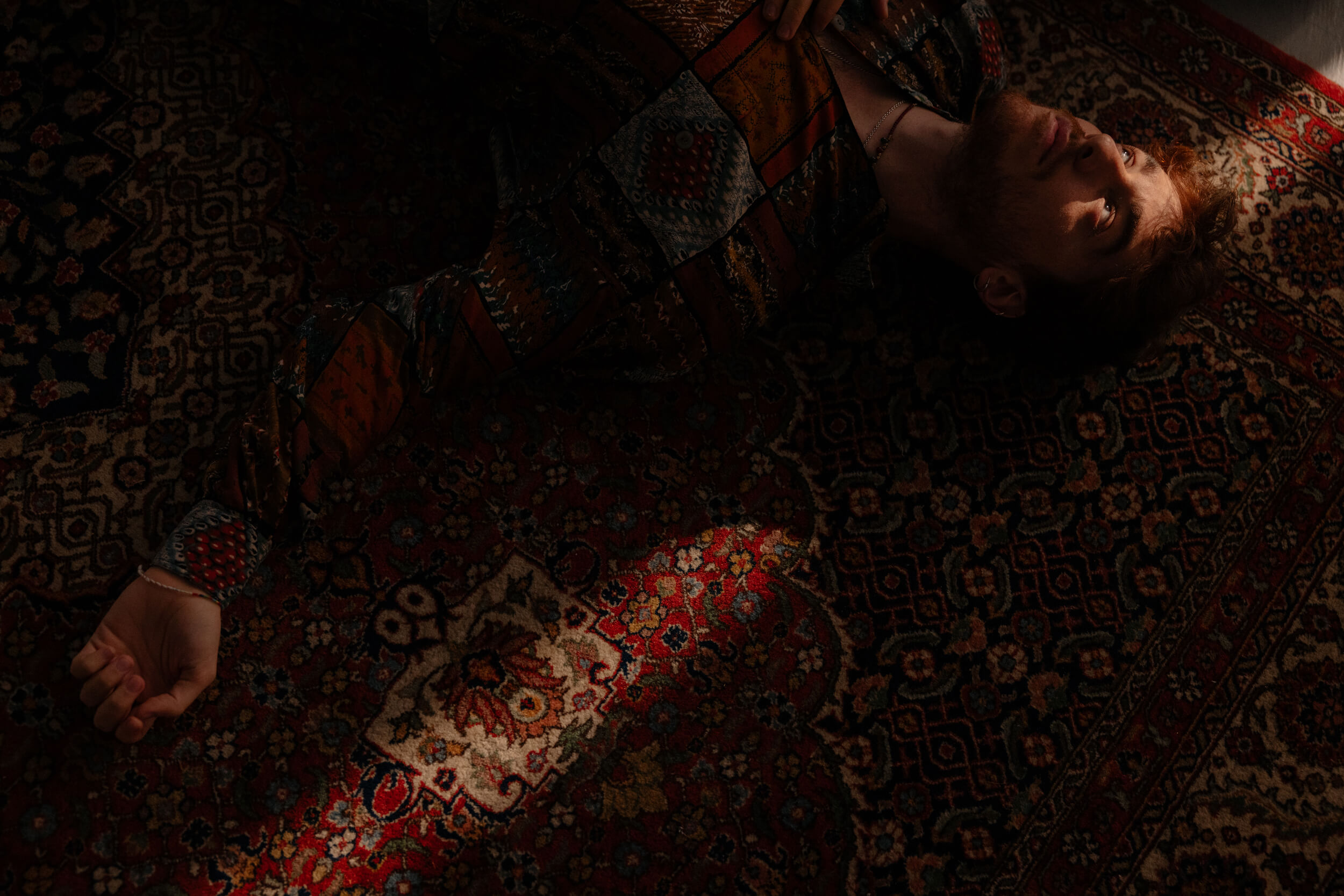
Do you ever write things yourself?
Yes, writing is my second favorite form of expression.
It depends, actually, sometimes it’s also the first one because in most cases it can even be much more personal than acting. Acting, in fact, always implies a series of constraints related to the character you need to take into account. Instead, writing allows me to record the phases of my life, so writing about myself and my thoughts at a certain moment reminds me of my thoughts and emotional state: it’s a bit like a map of my path. On the other hand, sometimes it allows me to bring order when maybe I’m going through some difficult times, writing allows me to place some order and say, “All right, I’m starting from here”. I like writing, and I tend to do it mostly when I feel bad, rather than good, unfortunately, so my journals are not very joyful [laughs]. I’ve also tried to merge cinema and writing, I tried to write a short film which sooner or later I’d like to realize, although as of now I don’t feel ready for that. I find it complicated because it’s a union between my thoughts and a visual representation of them, so it’s a very brainy operation more than emotional work or an elaboration of the text, it’s a conceptual kind of writing, which for me is harder to realize.
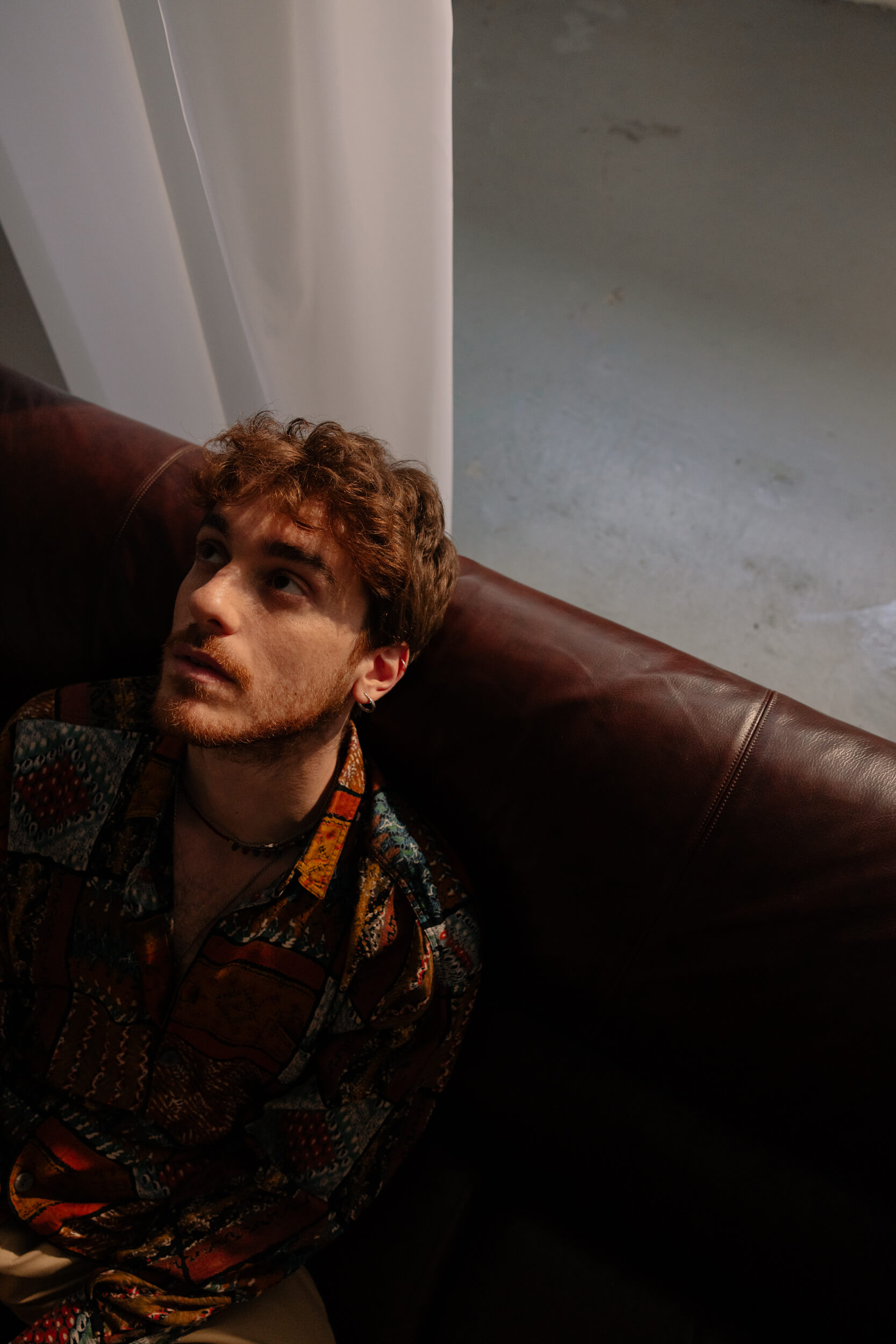
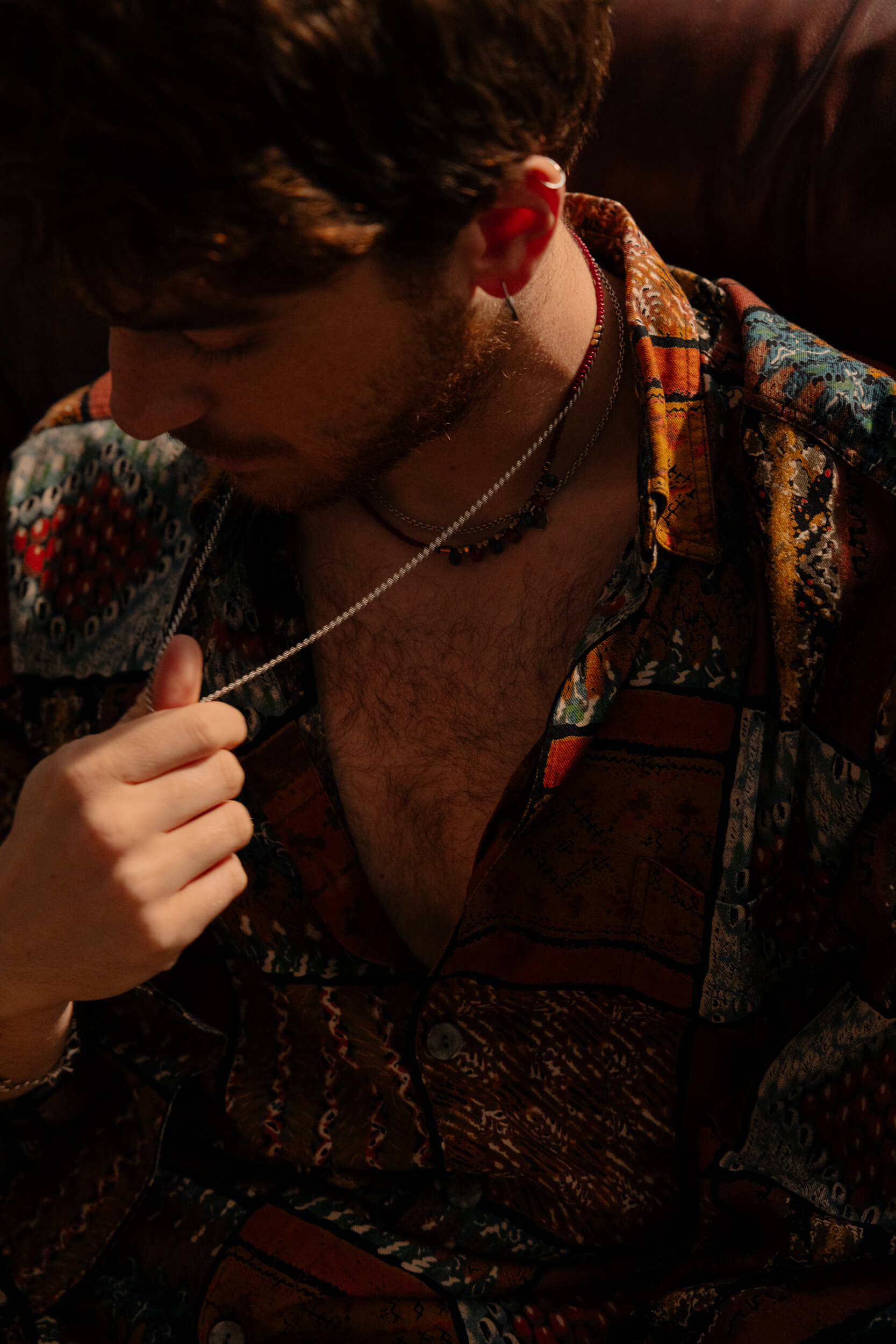
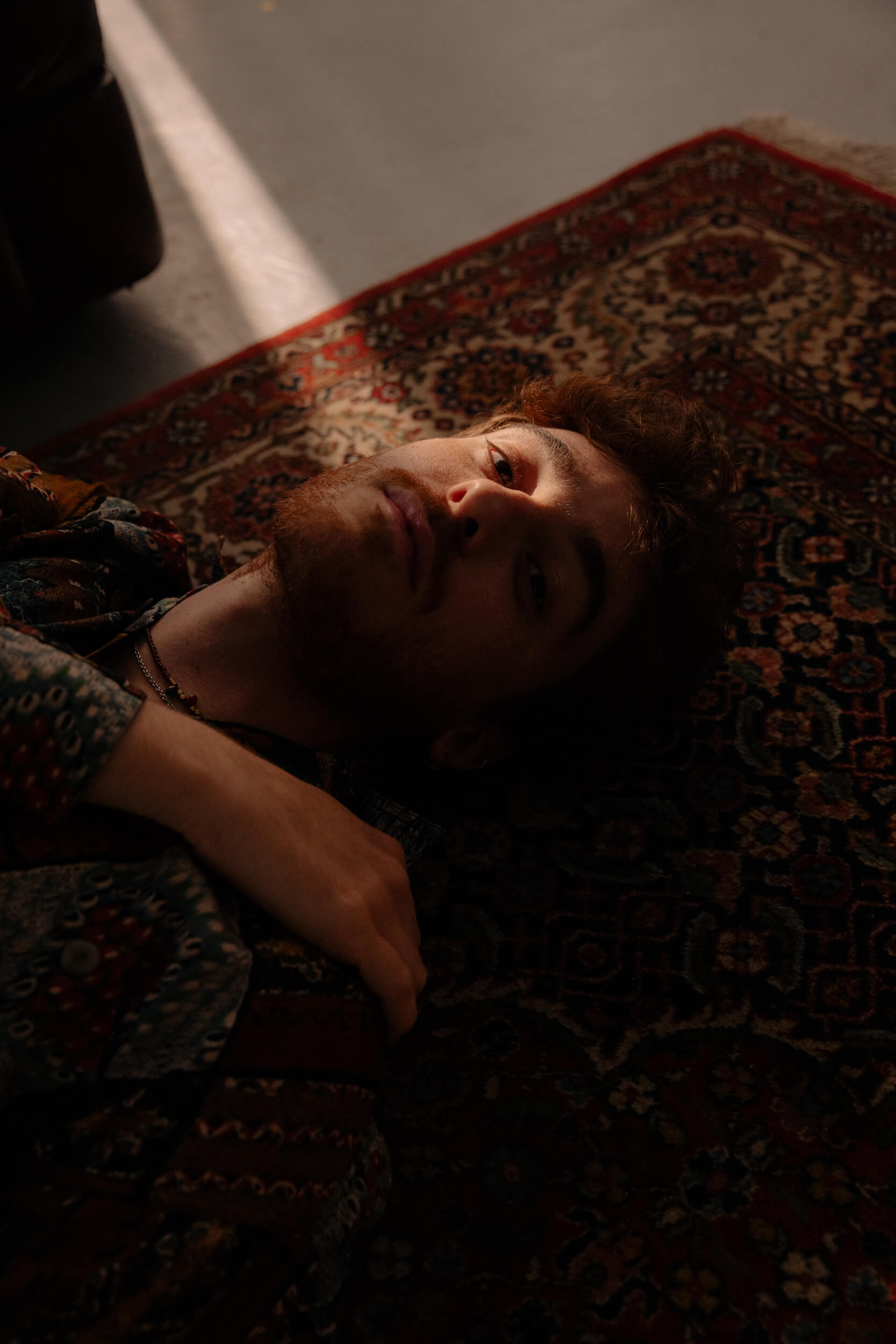
Director Roberto Faenza is back with a movie about Italian poet Alda Merini where you play Arnoldo Mosca, the great-grandson of Mondadori’s founder. Alda Merini often wondered, “What’s freedom?”. What’s freedom for you?
Freedom for me is to get out of the box I’ve been imprisoned within ever since I was a child, forcing me to a mode of action that I don’t like and I’m trying to change also thanks to therapy. Let’s say that freedom for me is when this box is broken and I can be someone else beyond myself; for this reason, as well, I’m an actor [laughs].
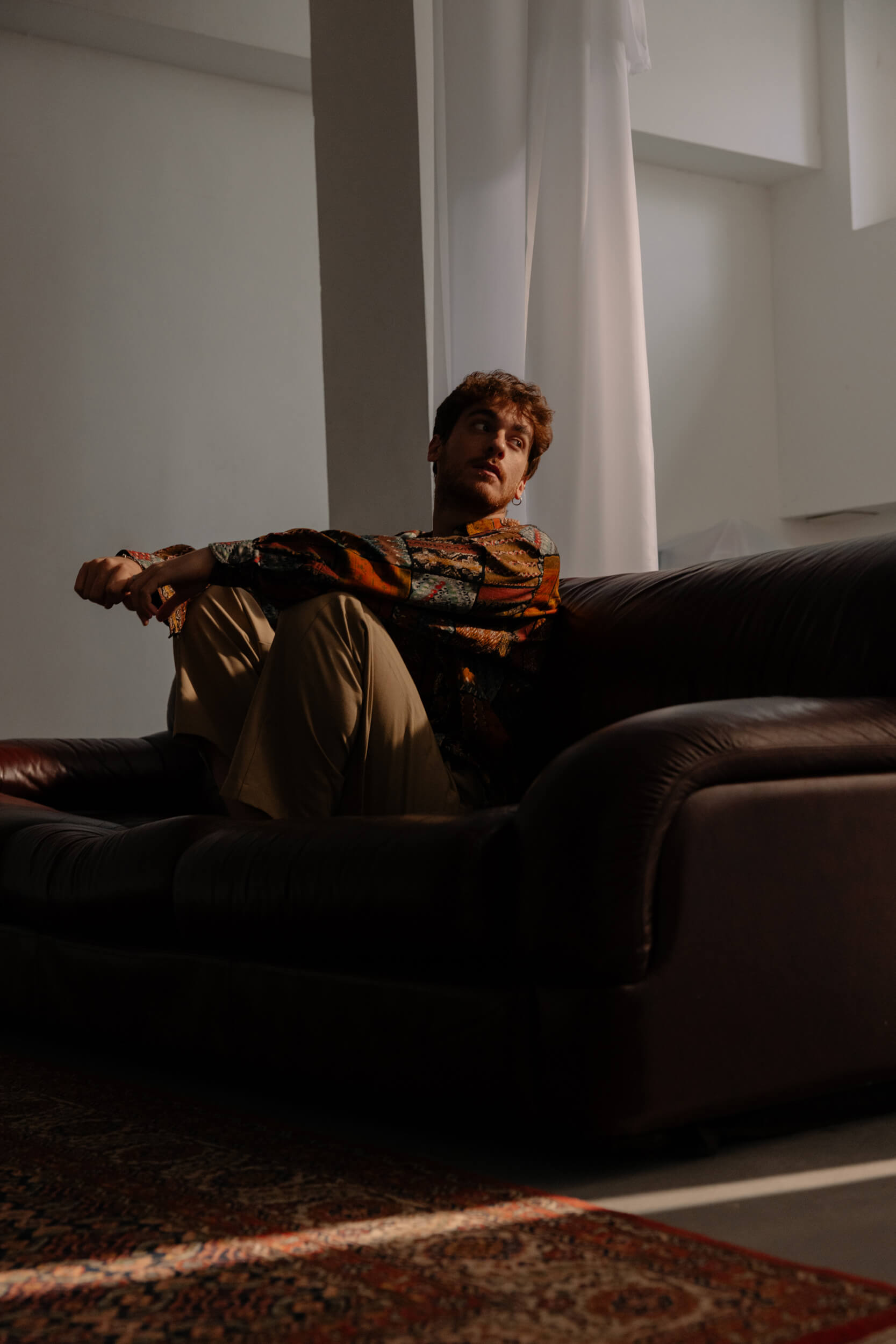
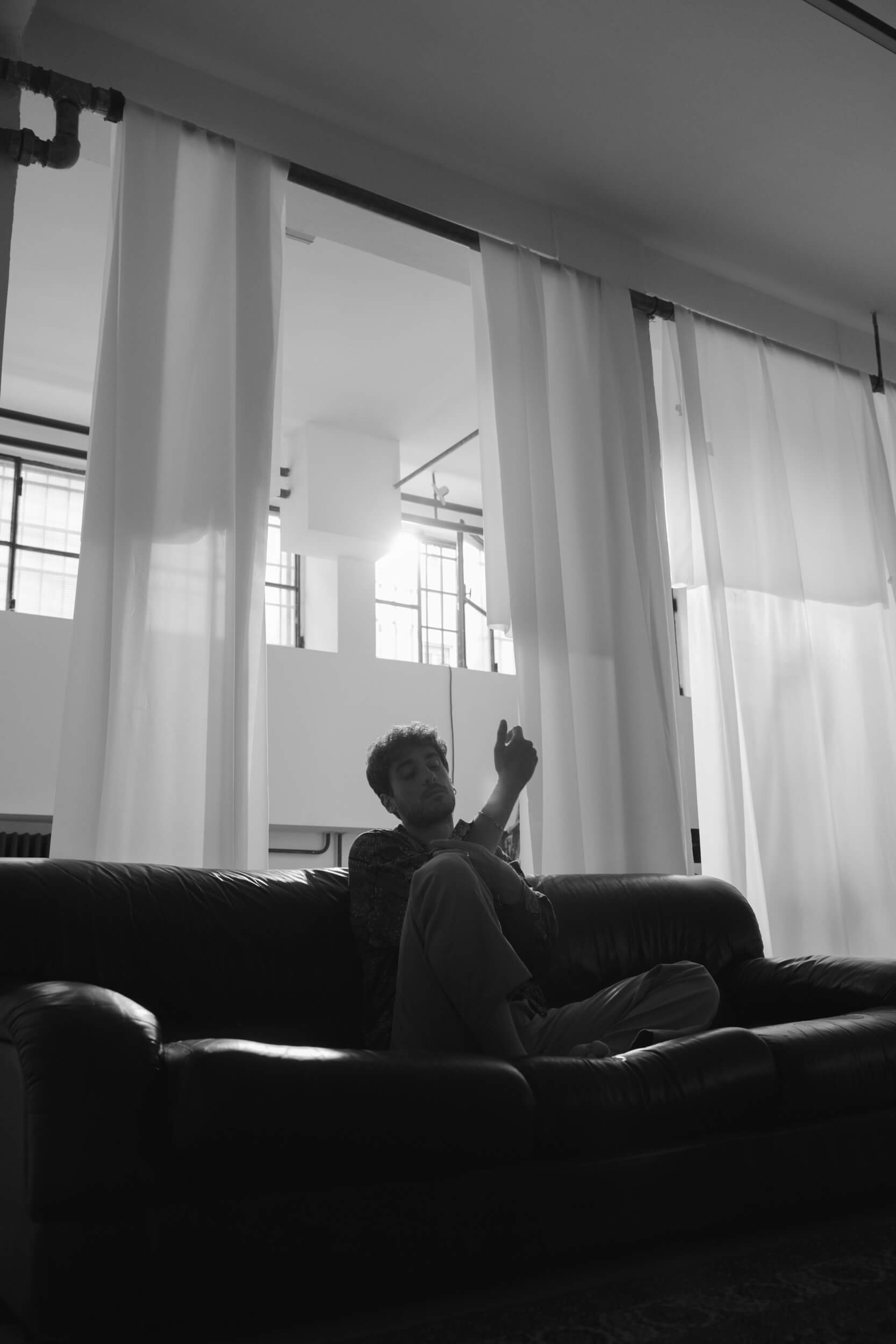
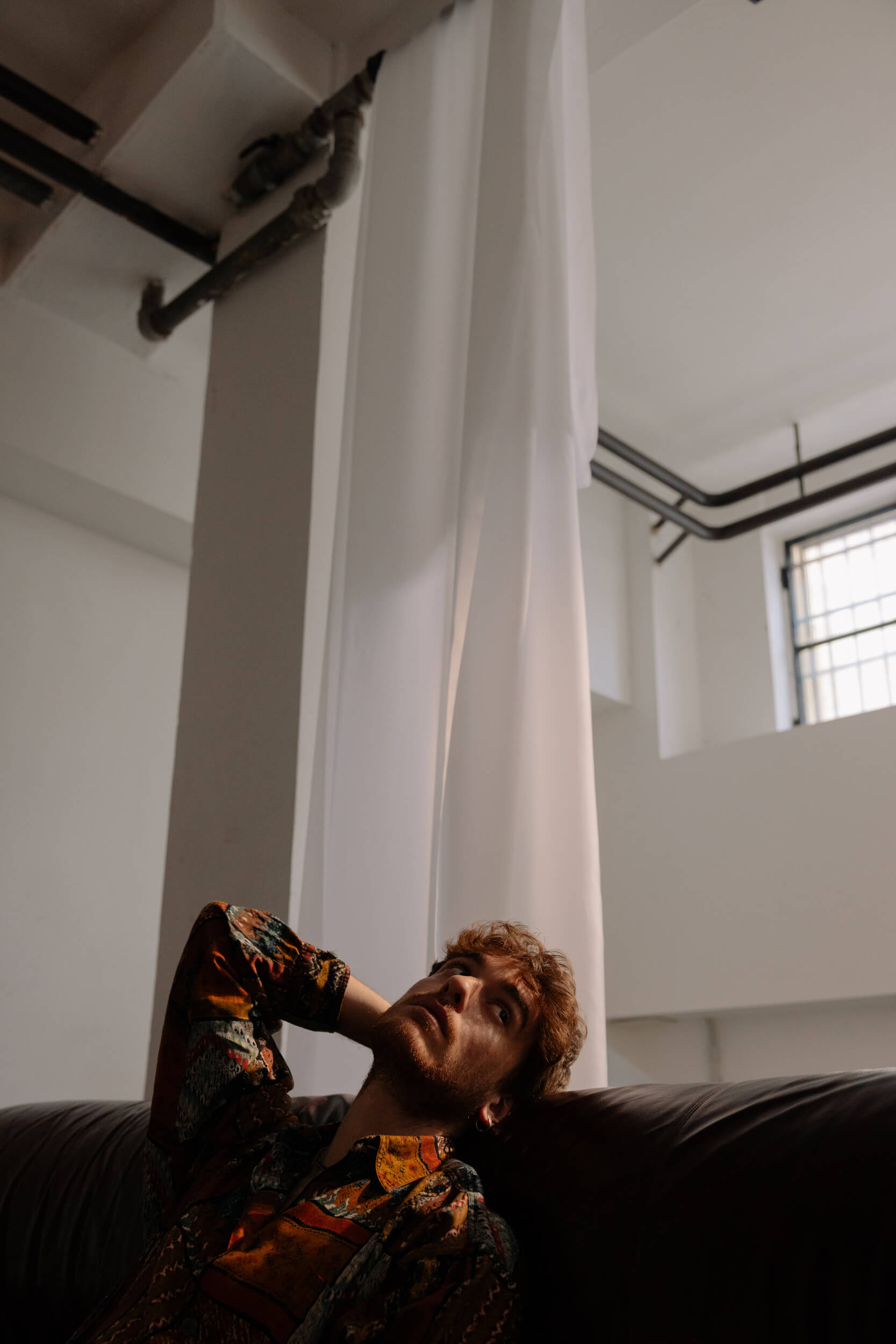
“Someone else beyond myself”
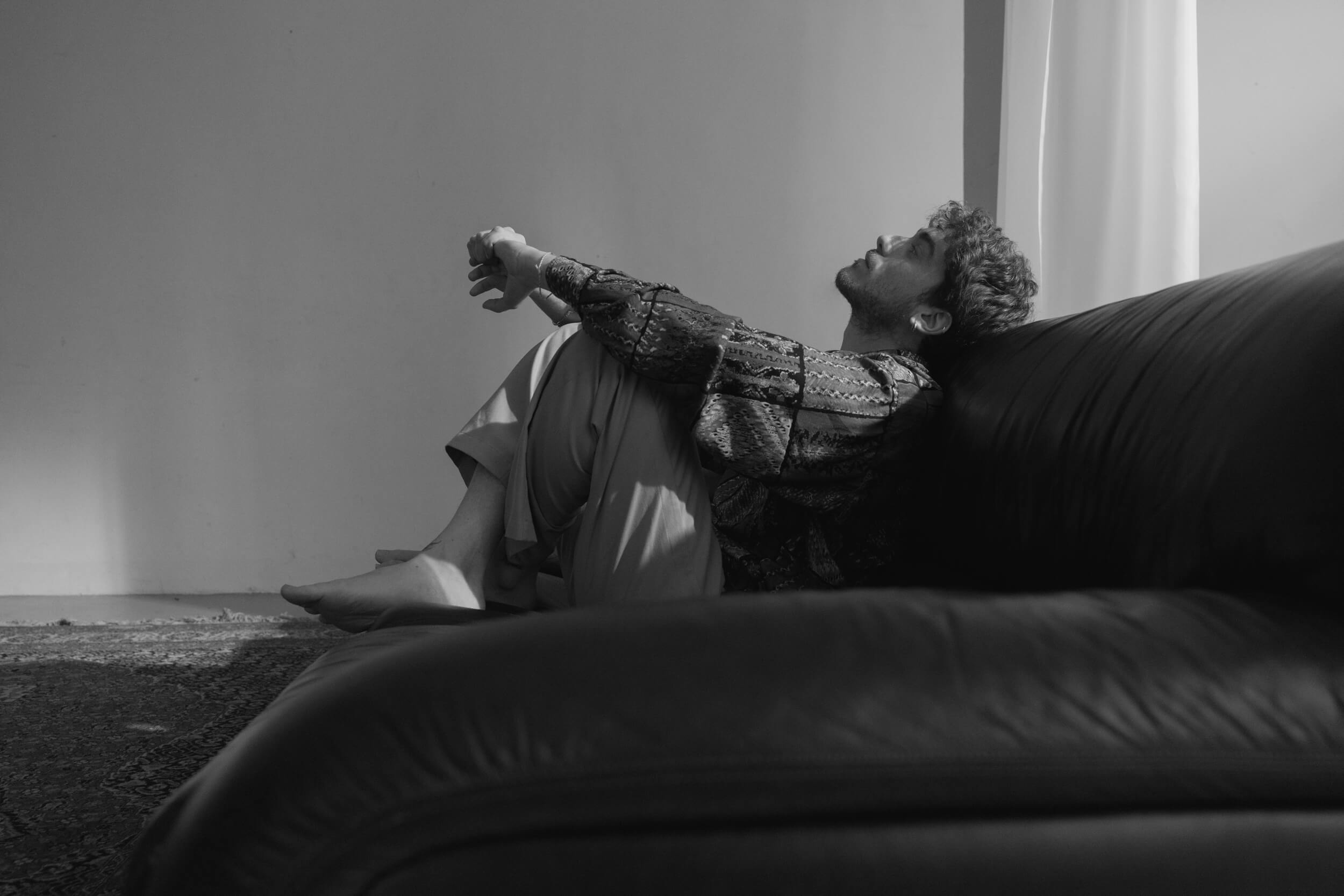
You’re soon starting to film the second season of “Everything Calls For Salvation”. How does it feel to realize you’re returning to such an important project?
Exactly the same as before starting filming the first season, or even happier because in season one I really had no idea of what would have expected me, which people I would have met. Now, we’ve gathered a fantastic group of people and I can’t wait to return to working with them. On the one hand, I can’t wait, on the other hand, as for the first season, I’m shitting my pants because there are always very delicate and important issues to tackle, and you need to be emotionally available every day for two/three months of shooting, you need to be available for the others and receive what the others give you, that is, in this case, very strong feelings, which is something that certainly scares me.
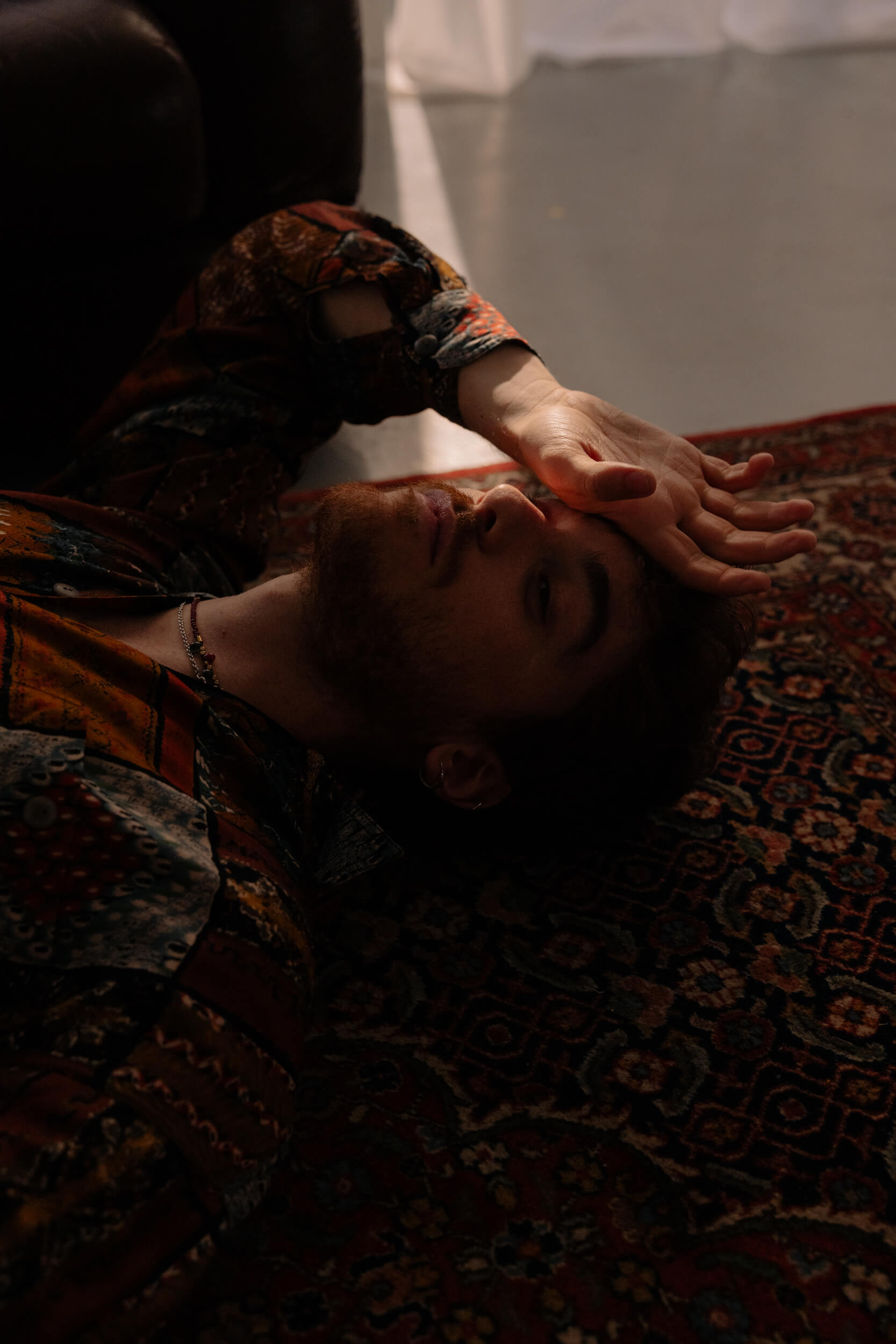
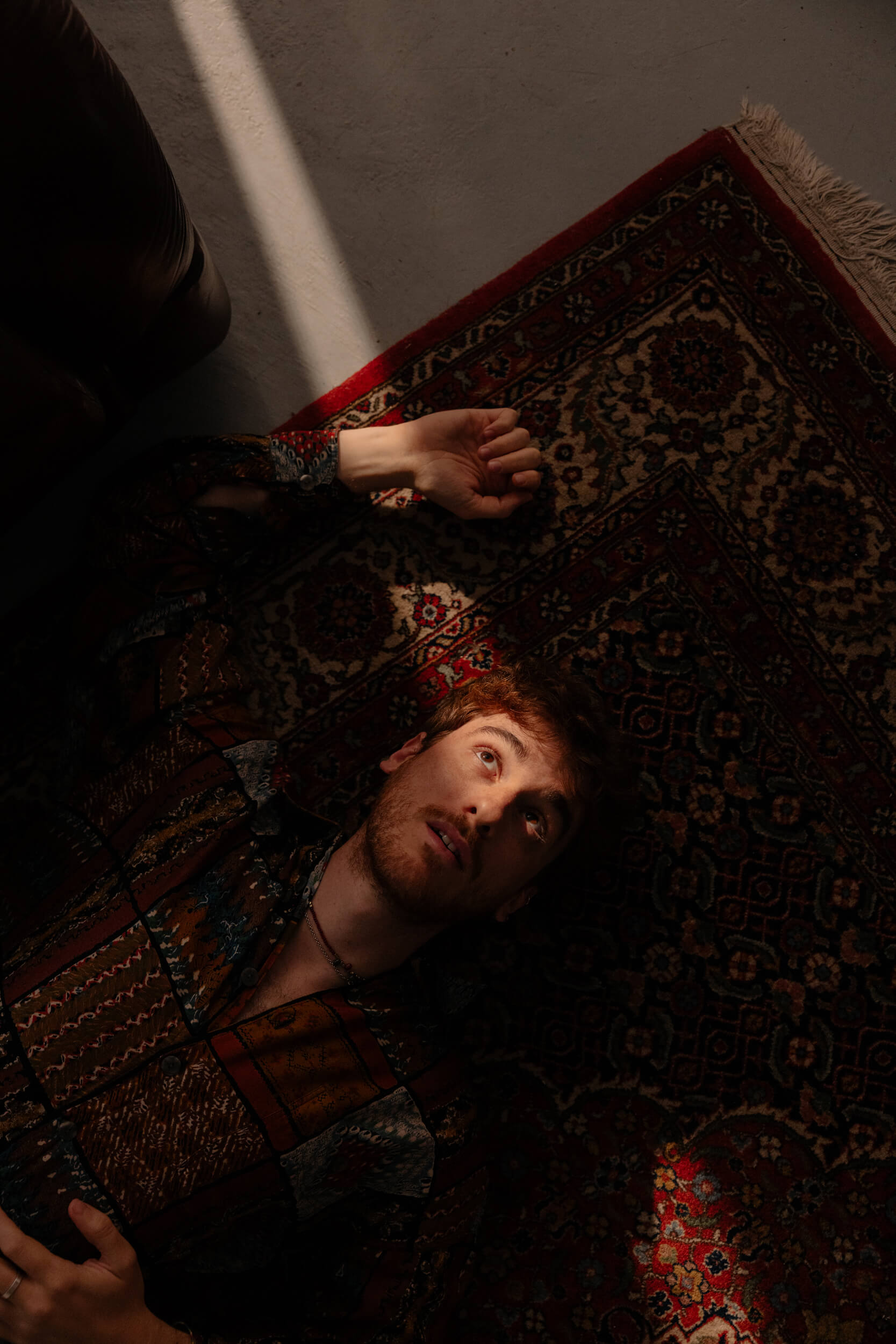
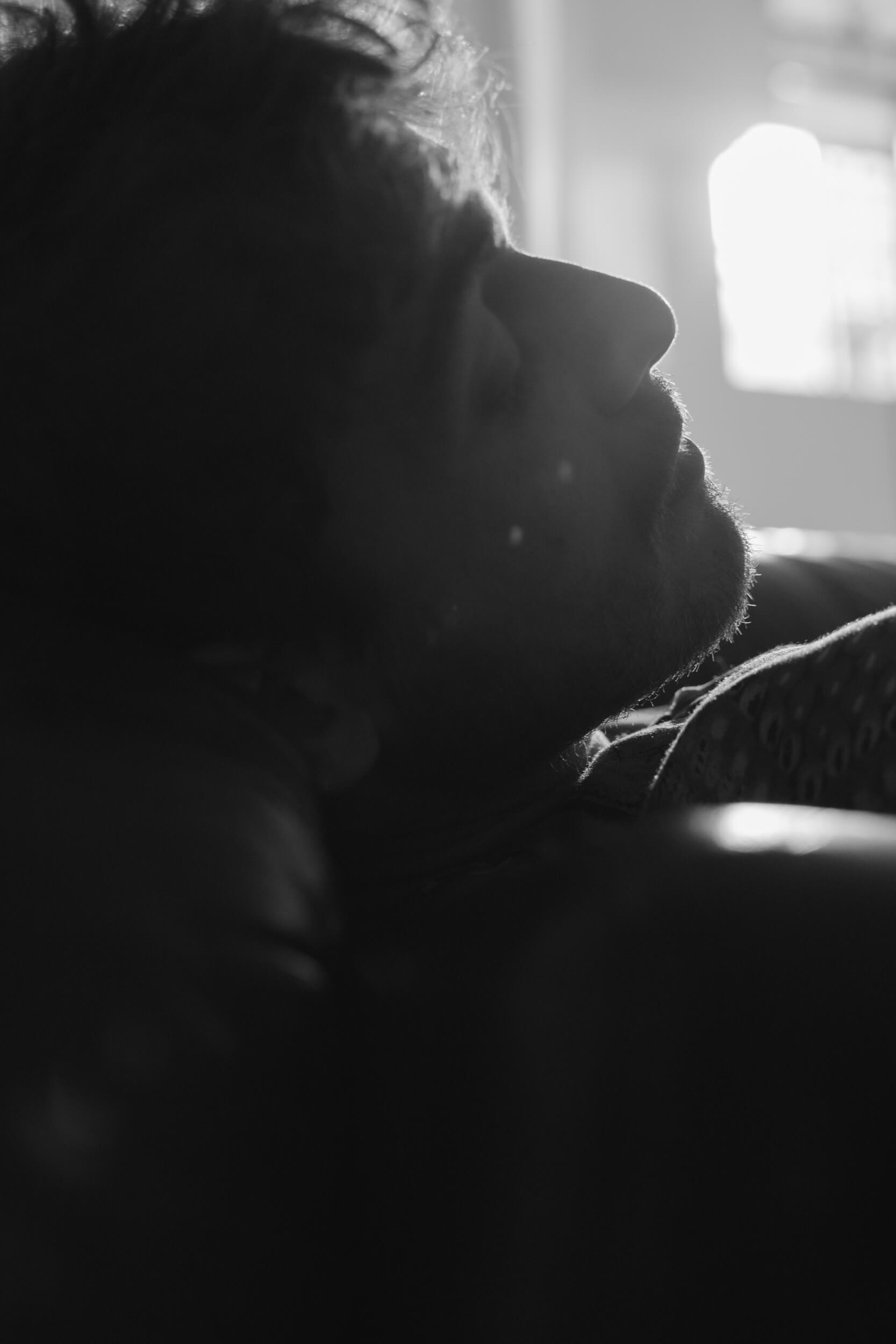
Of course, I imagine that, for the topics you tackle, or even just for the effort of adapting a novel to the screen and playing a character that gives all himself, it mustn’t be easy to “get out of it”, as well as bringing out in your everyday life certain personal stuff, certain thoughts that always make you question yourself.
Right, absolutely it’s a job that constantly puts you in front of a mirror, compare with your own self every day, even when you’re not working. The “big stress” that comes with being an actor, at least for me, is exclusively psychological, also considering that I haven’t been part of projects like the TV show “Romulus”, which I know is quite challenging also from a physical point of view. On a psychological level, there are things I need to work on, but that’s the job we’ve chosen and we’re lucky to be doing, and I’ll always be grateful for that.
Furthermore, I’m not one of those actors who always need to be in character, it’s something I can’t experiment with because at some point I need to get out and go back to being myself in my everyday life and distract myself outside of the set and go back to doing my things with my people, otherwise, it would be too much. I remember that when we were filming “Everything Calls For Salvation” I would do everything I could not to be alone dealing with what I’d done during the day or what I would have done next because I needed to unplug and get out of character and the story and go back to being myself.
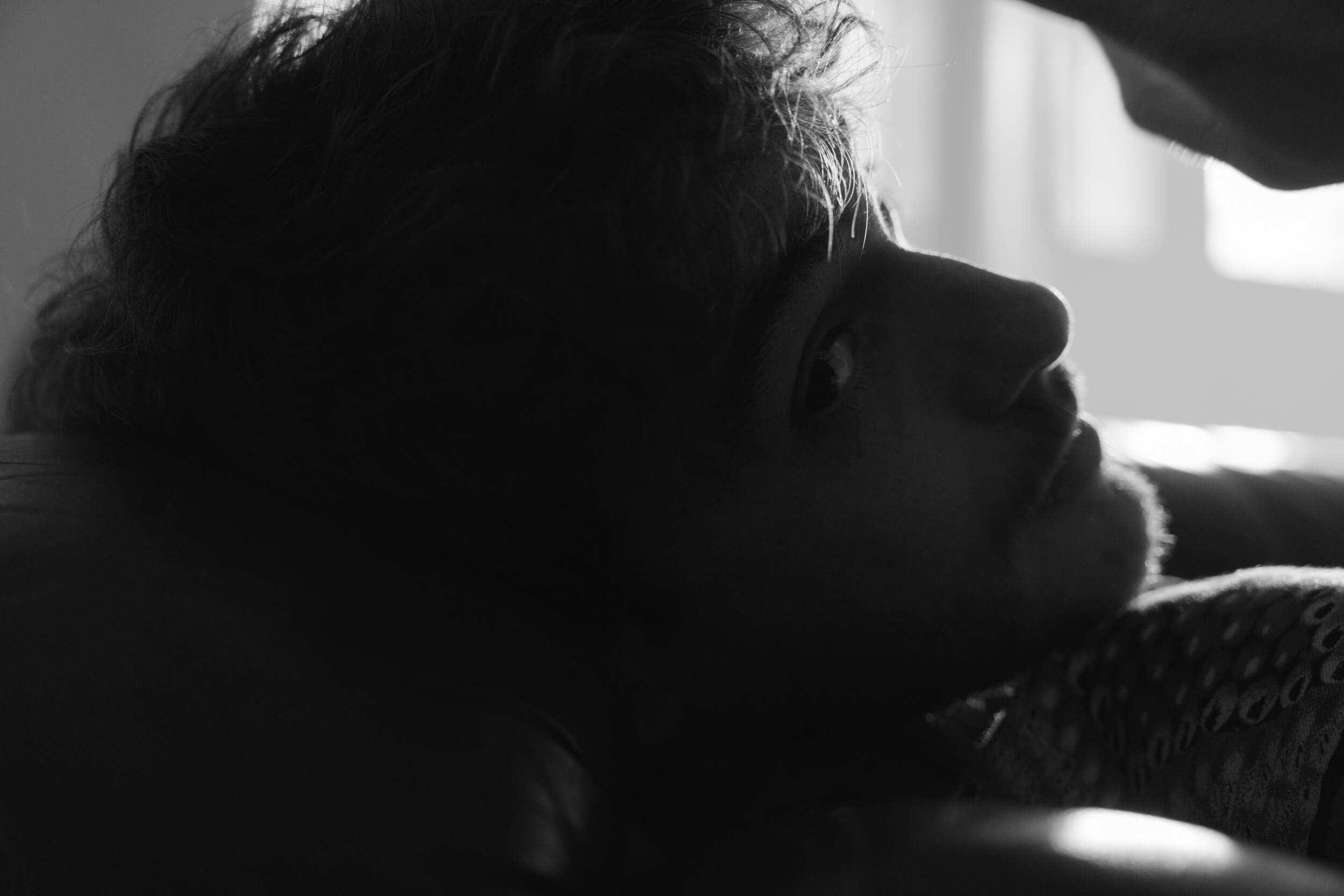
“At some point I need to get out and go back to being myself”
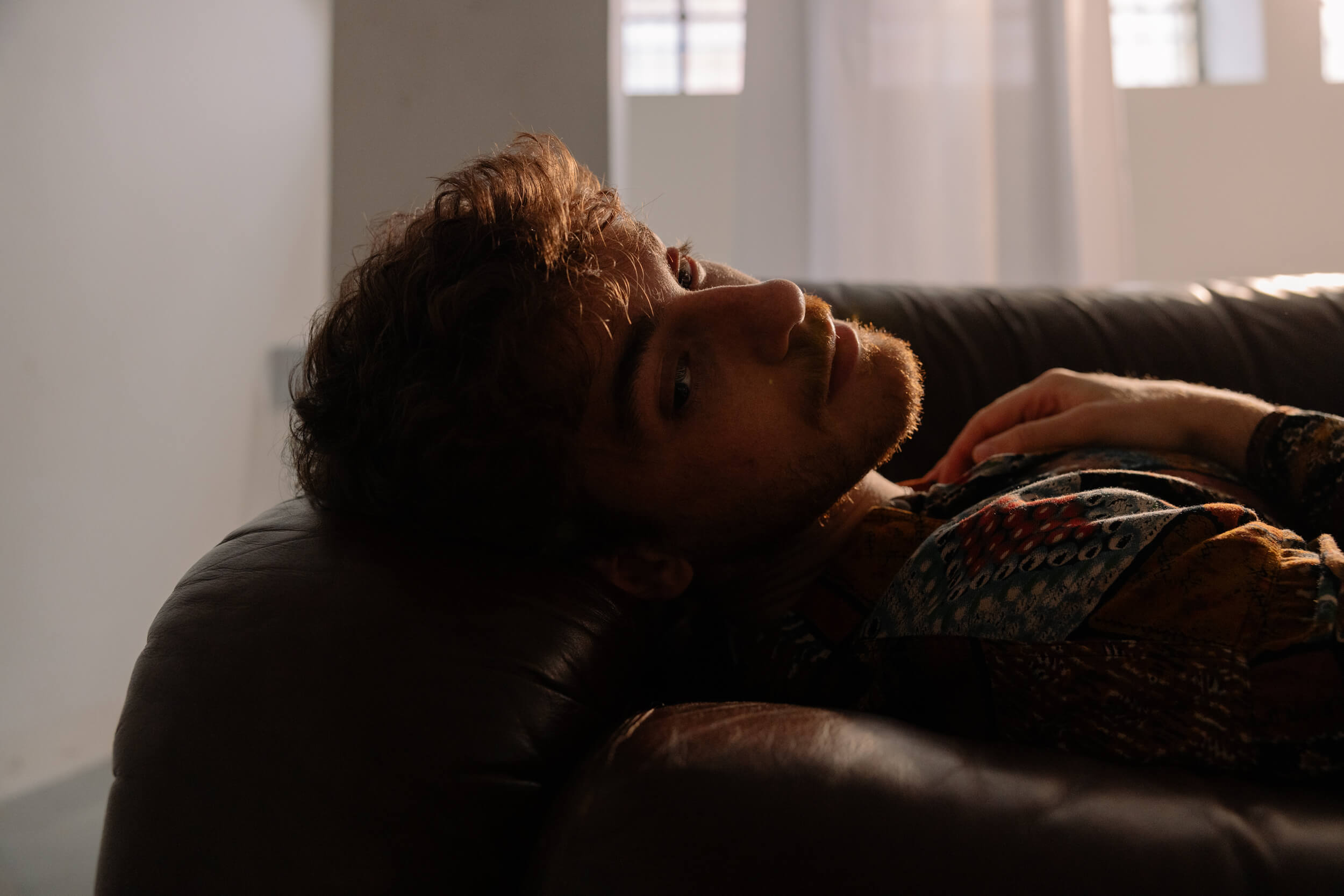
As an actor, you did some very precise choices in your career up until now. Is there something in particular that makes you say yes to a project?
I’ve recently started making very specific choices because unfortunately, this is a job that builds up on the “noes”. However, what I always try to keep in mind is that this is a real job, despite being part of the world of art; it’s a job that very often doesn’t depend completely on us and so our choices are sometimes dictated by much more practical needs and so, very often, people don’t really have the possibility to make the choices they’d like to make.
In fact, one thing I really hate is when people from this field criticize the very skilled actors or actresses who’ve made choices exclusively dictated by a practical need because this is what we’re talking about, the fact that people somehow need to make ends meet and not everyone has the possibility to choose. Over the past few years, I’ve been trying to do only the things which I believe in and that I like, and what I look for always depends on the project and the moment of my life I’m at.
The script is certainly where I start from, and then, obviously, also the people whom you work with. Then, of course, if the project involves brilliant directors, I’d go for it regardless of the script [laughs], but that one is certainly a vital element. For example, If I really like the script, even though I’m not the number one fan of my character, I can find a compromise. I mean, I believe that the story you want to tell is the most important element, along with the character I play, which is essential in my choice because what I like to represent is always the person, not the character. For me, it’s vital to have the chance to give life to a tridimensional tale of the character, not to relegate it to the figure who wants to symbolically tell something within the story and therefore is there for one exclusive reason, but somehow give it a shape and tridimensionality, and so make them live in its bright and dark sides.
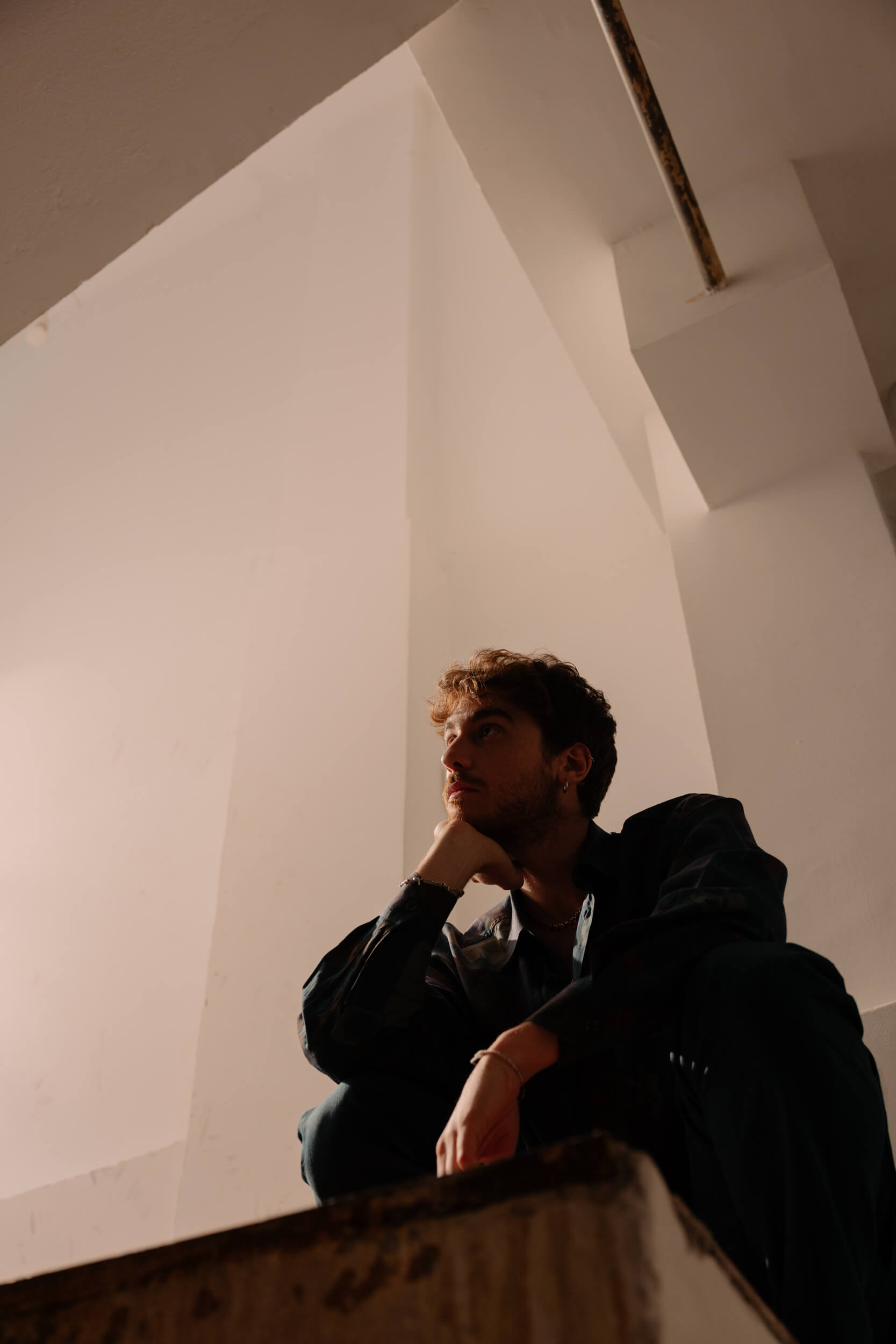
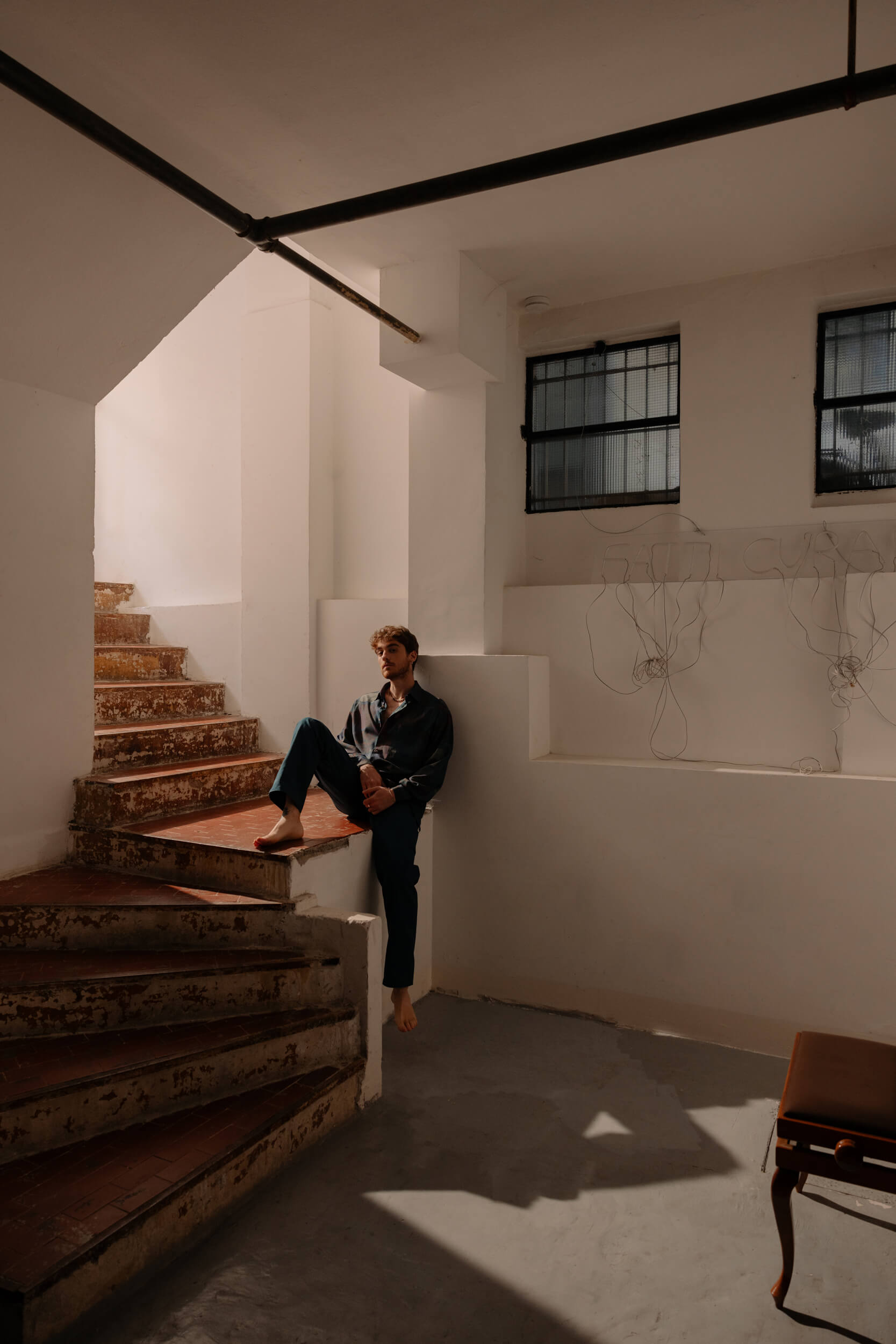
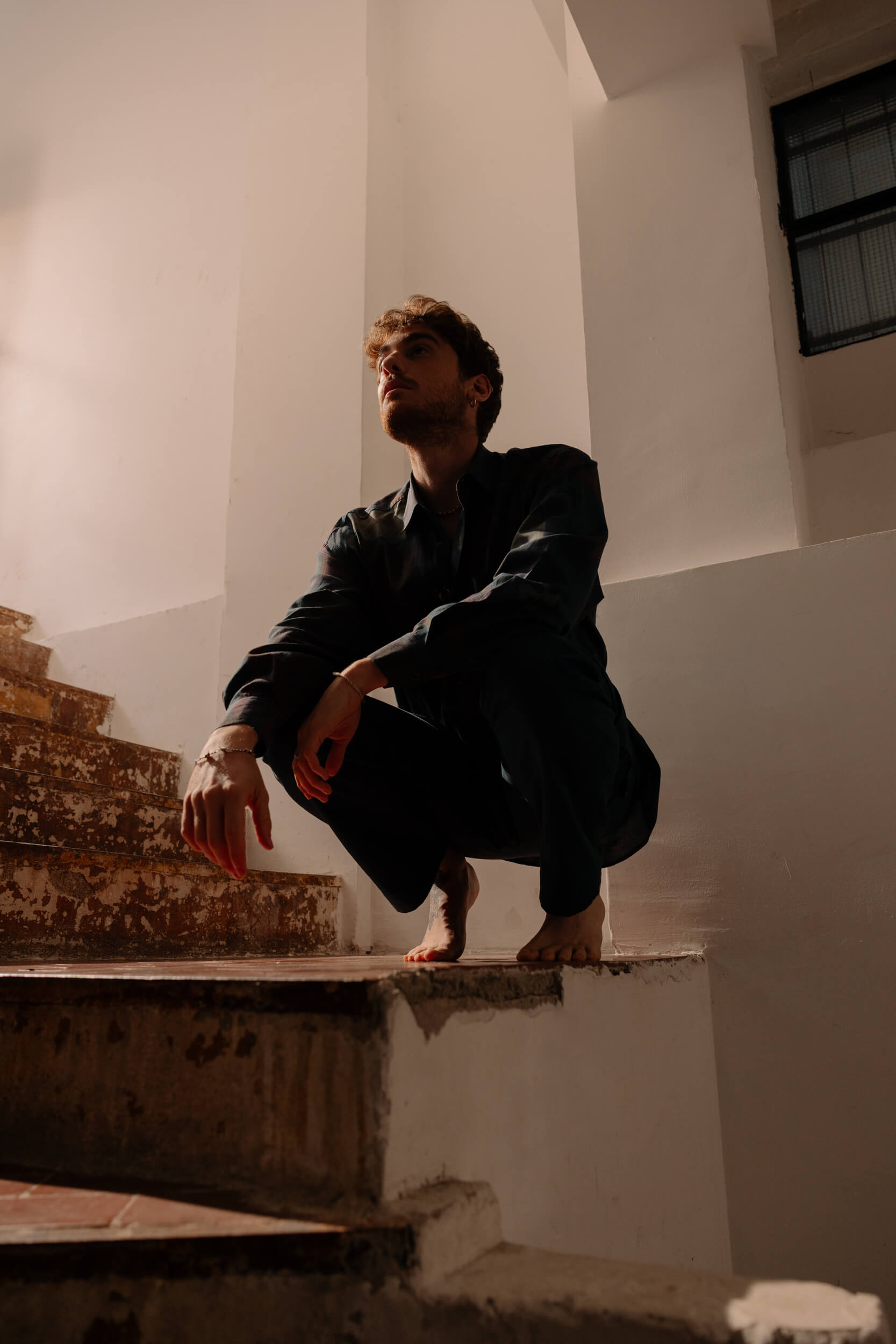
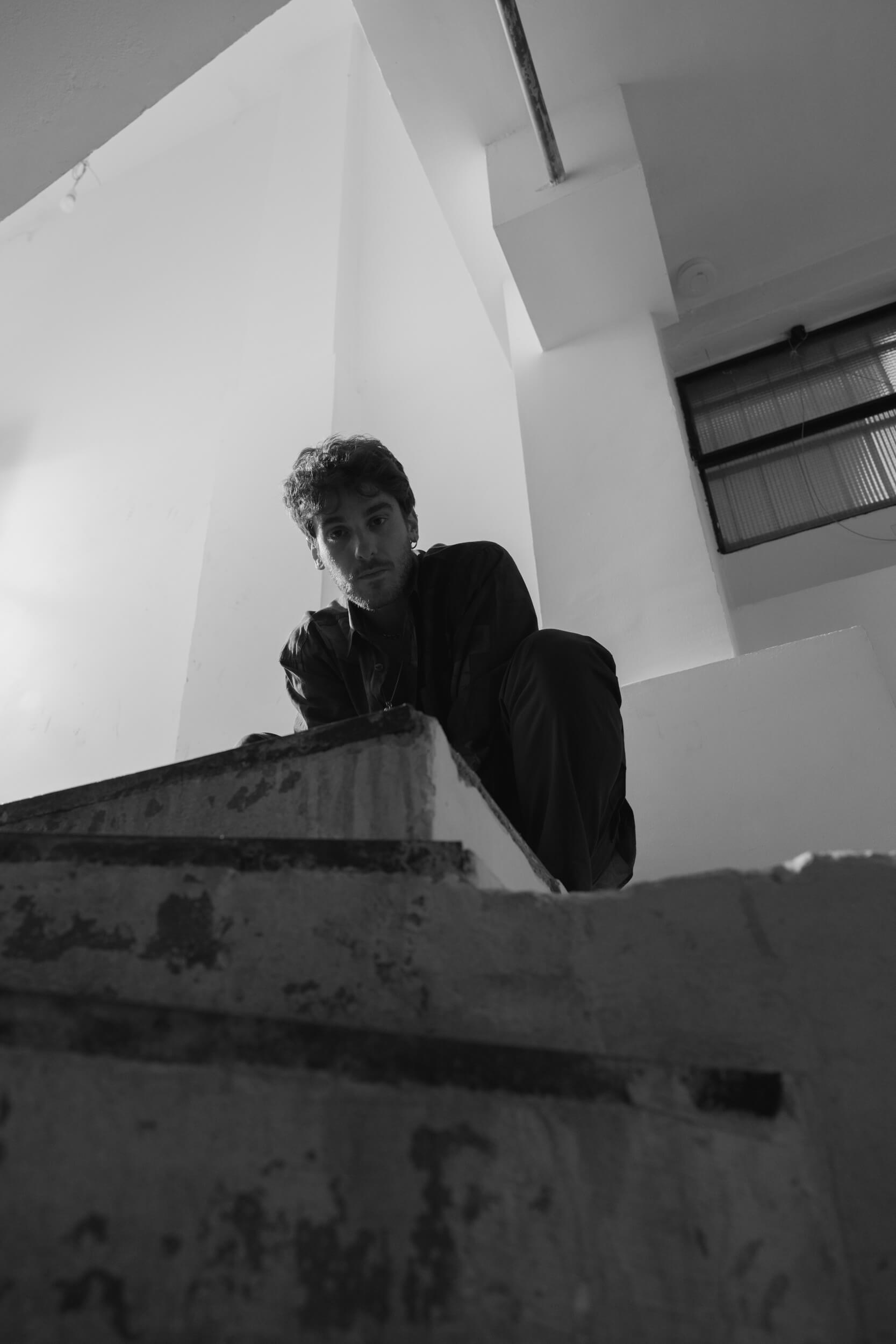
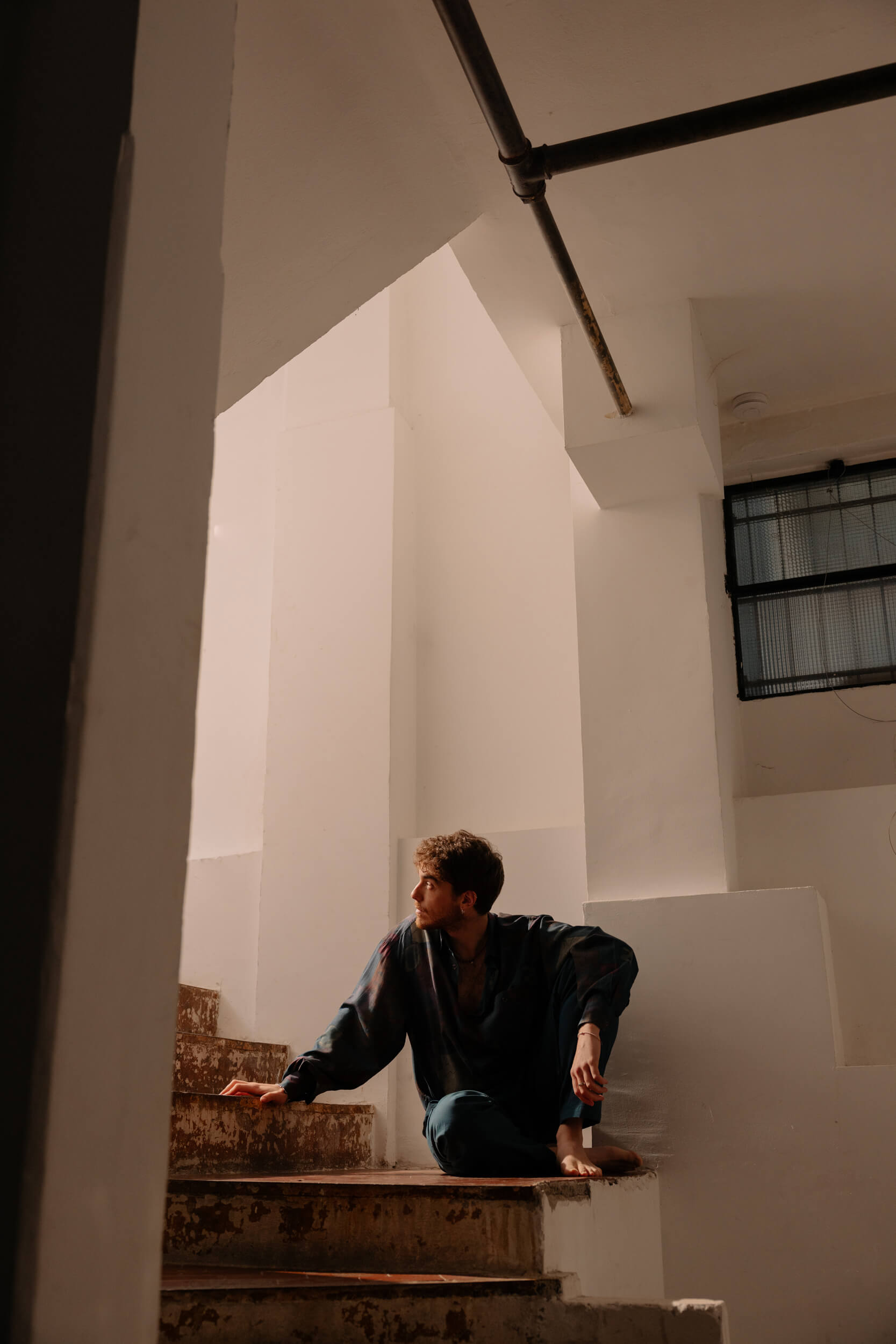
What is it that scares you the most and when do you feel the safest?
What scares me the most is loneliness, but also the loss of important bonds. For example, I have a completely unsolved relationship with death because it represents the highest expression of the loss of bonds. If I lose a bond, I don’t feel miserable because of the feelings I’m losing, but rather because of the everyday life stuff I shared with someone that I’m losing.
Where I feel the safest is where my girlfriend, my friends, and my family are, with the people who know me for who I am.
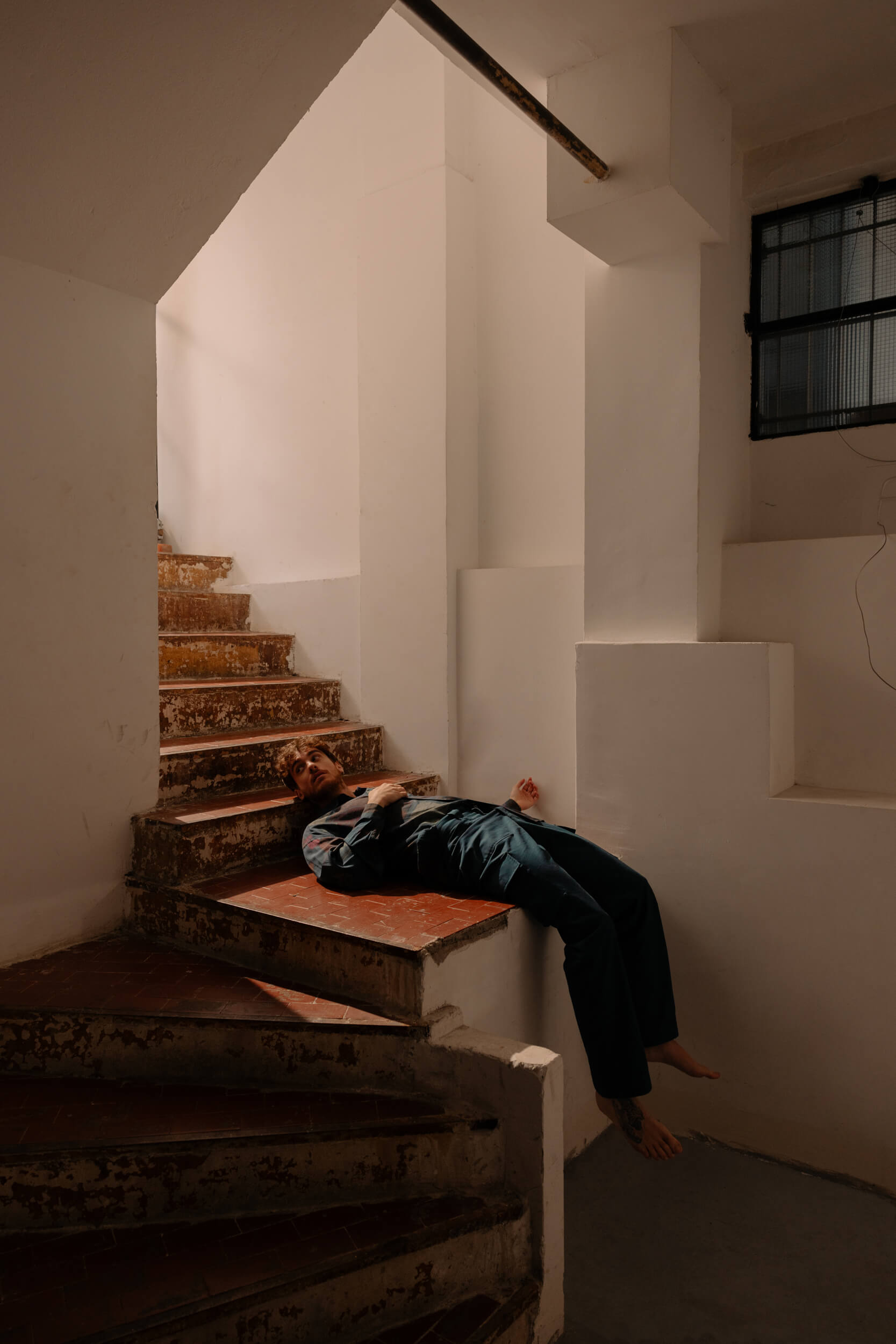
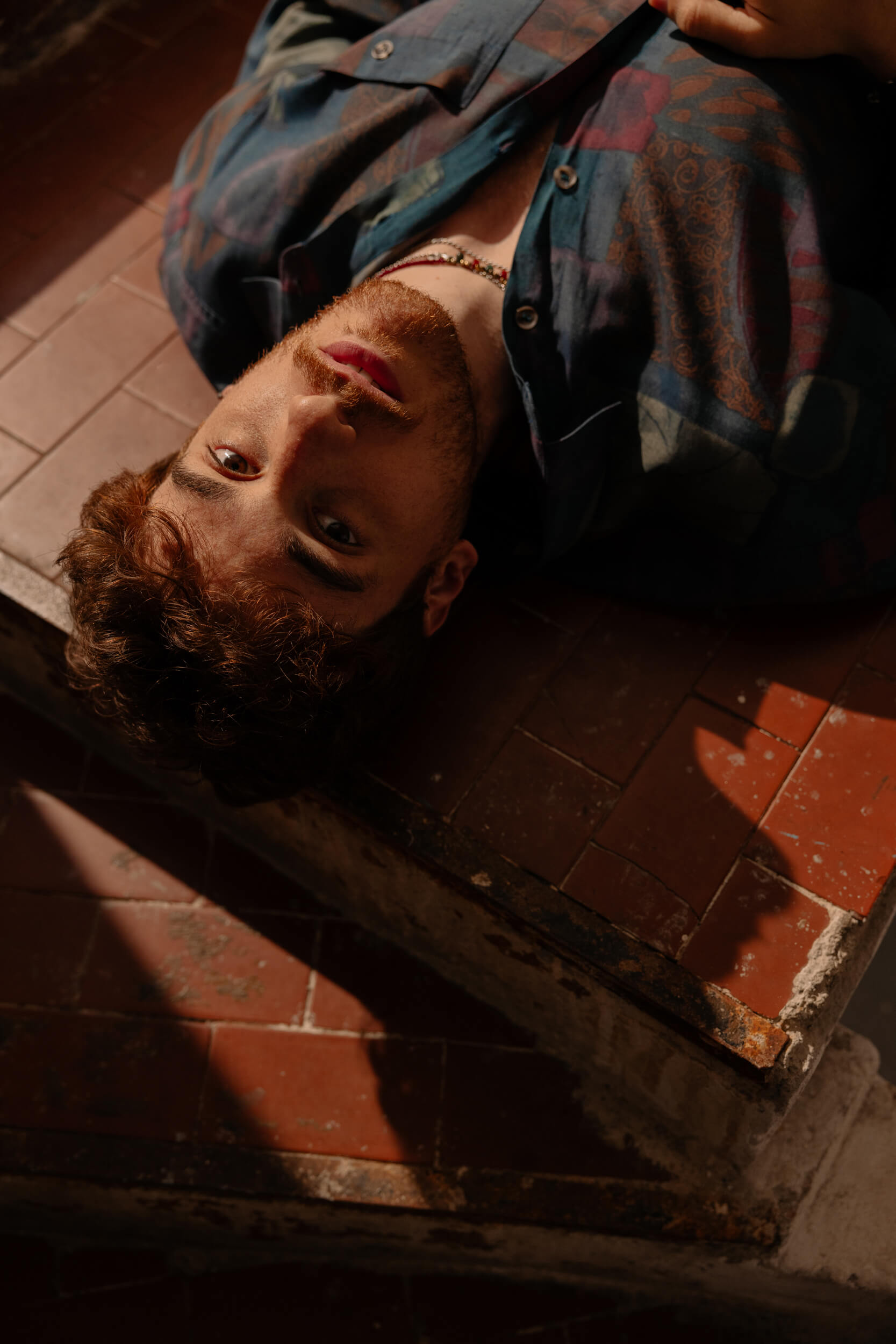
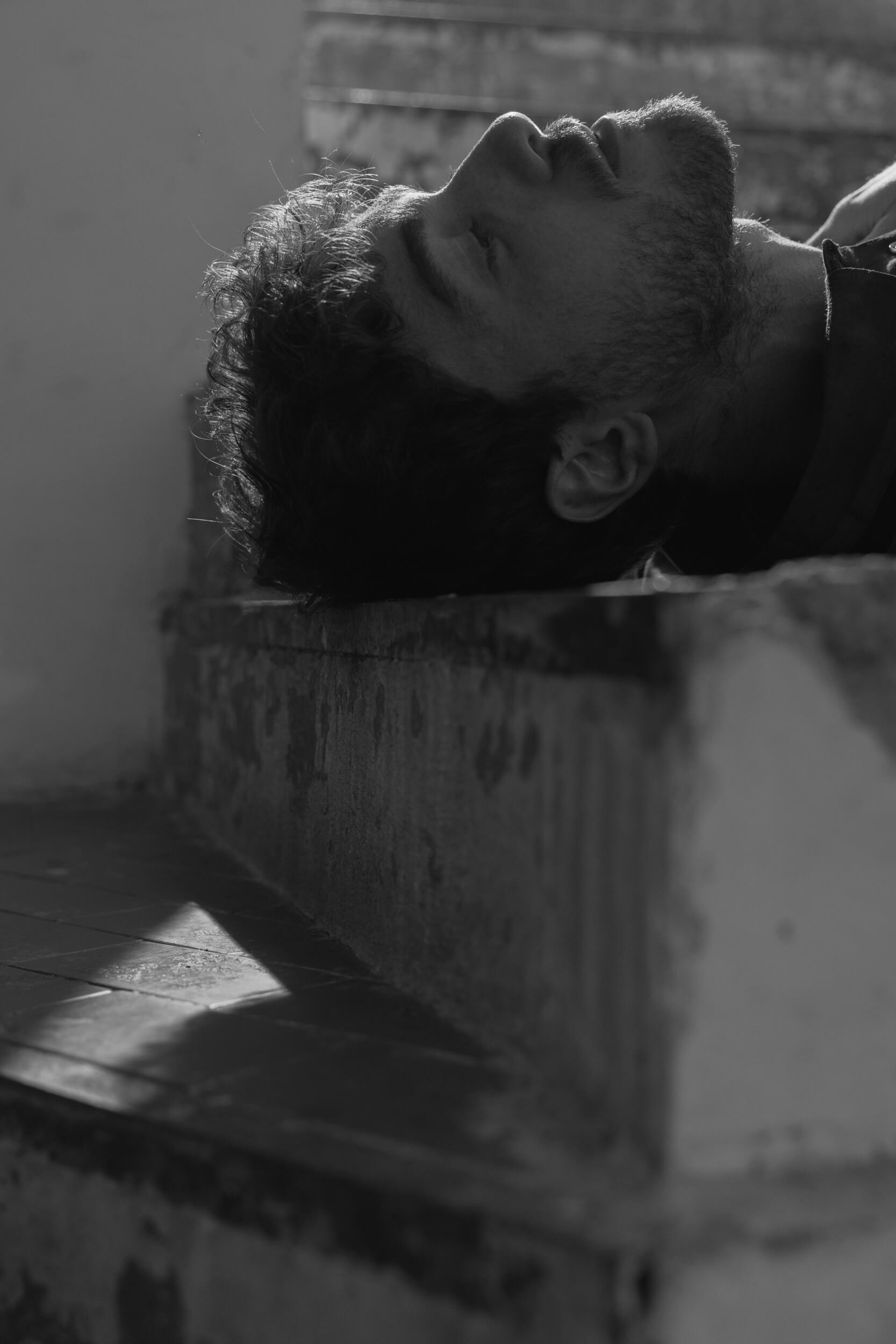
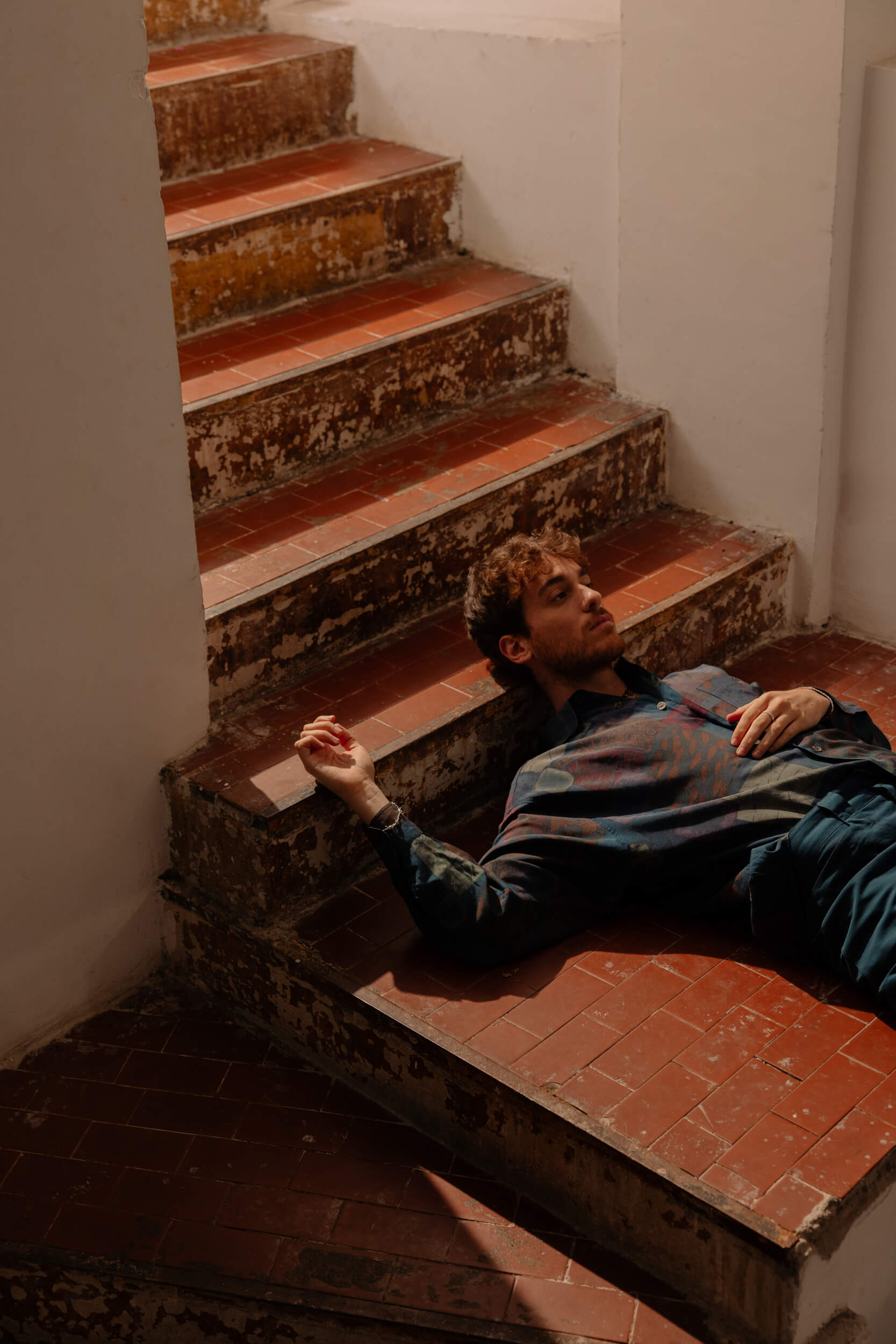
Your greatest act of rebellion?
My greatest act of rebellion was against myself, a positive rebellion, to be clear. I’ve always been very insecure, and the quest for self-confidence is something that’s certainly influenced a great part of my life: my act of rebellion was to decide to bet everything on myself. Until two years ago, I’ve always believed that I would have graduated from university, started my specialization, and become a doctor, but this was mainly because I’ve never had the guts to bet on myself and take the risk to see what happens if everything goes wrong. Again, two years ago I decided to do it, to bet on myself and blow up the life-choice modes I’ve always adopted, so it was an act of rebellion but also almost a gift for myself. Then, there’s a part of me that hates this choice on a daily basis, and another part of me that’s grateful for having believed in myself and given me a chance, and for having said to myself at least once: “Look, fuck this, I’ll try”. Now, it’s going well, in the future, I don’t know, but I’ll always be happy about this choice at this moment in my life. Should I retrace my steps, I would have nothing to blame myself for, at least.
What are you reading right now, and what book would you suggest reading?
I’ve just been through a time where I didn’t feel like reading because I’m writing my dissertation, so I spend all day reading articles, and I really didn’t want to read like ever. However, on my way back from Milan on the day of our photoshoot, I went into a bookshop and started skimming through some books, when I found one by Joan Didion, “Blue Nights”, which is the one I’m reading right now. It caught my attention because of its plot, which focused on the death of her daughter in a particularly unfortunate year of her life, again going back to the fact that I have an unsolved relationship with death.
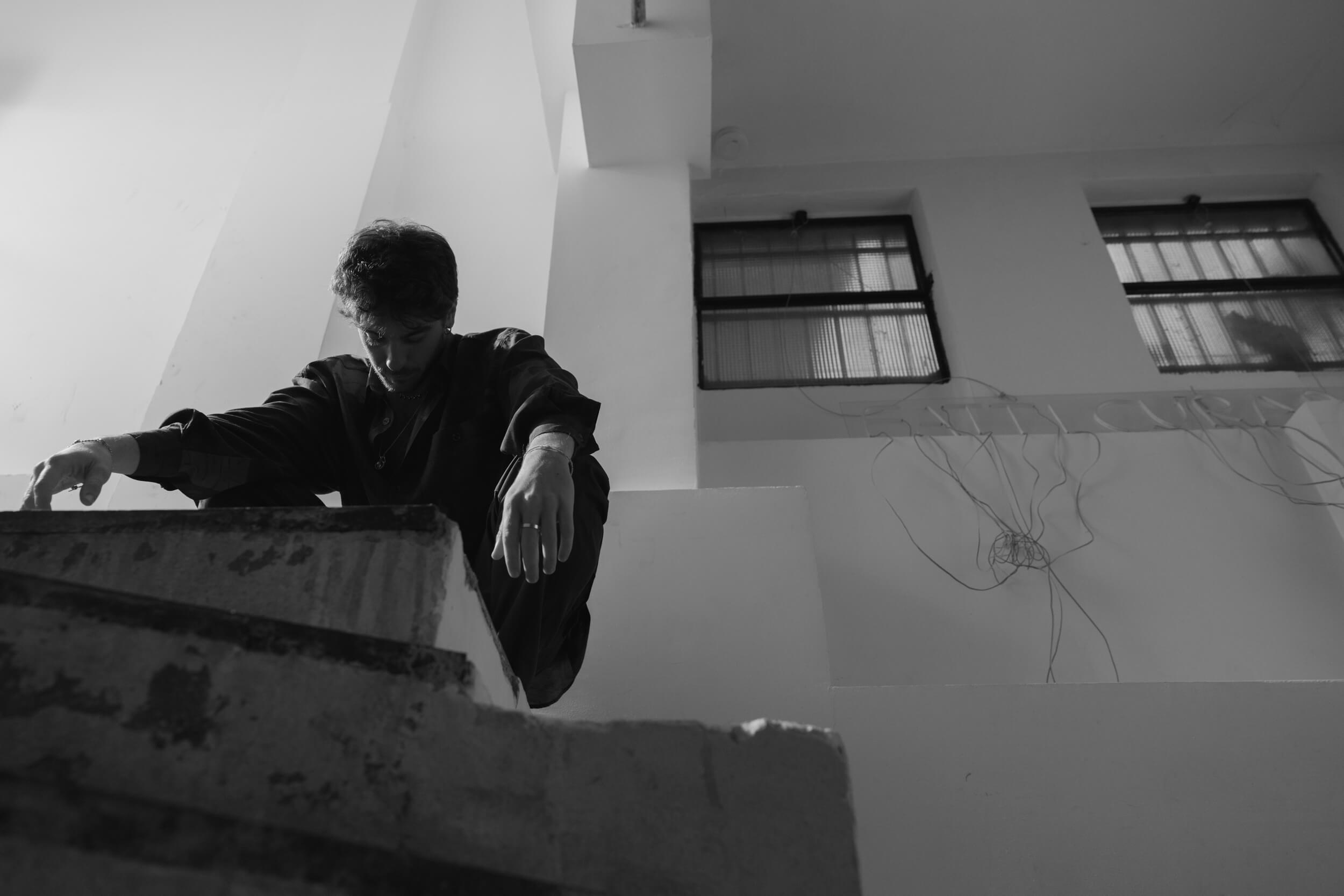
Photos & Video by Johnny Carrano.
Grooming by Sofia Caspani.
Thanks to Andreas Mercante & Edoardo Andrini PR Talent Agency.
LOOK 1
Total Look: Louis Vuitton
LOOK 2 & 3
Total Look: Vintage

